Shows
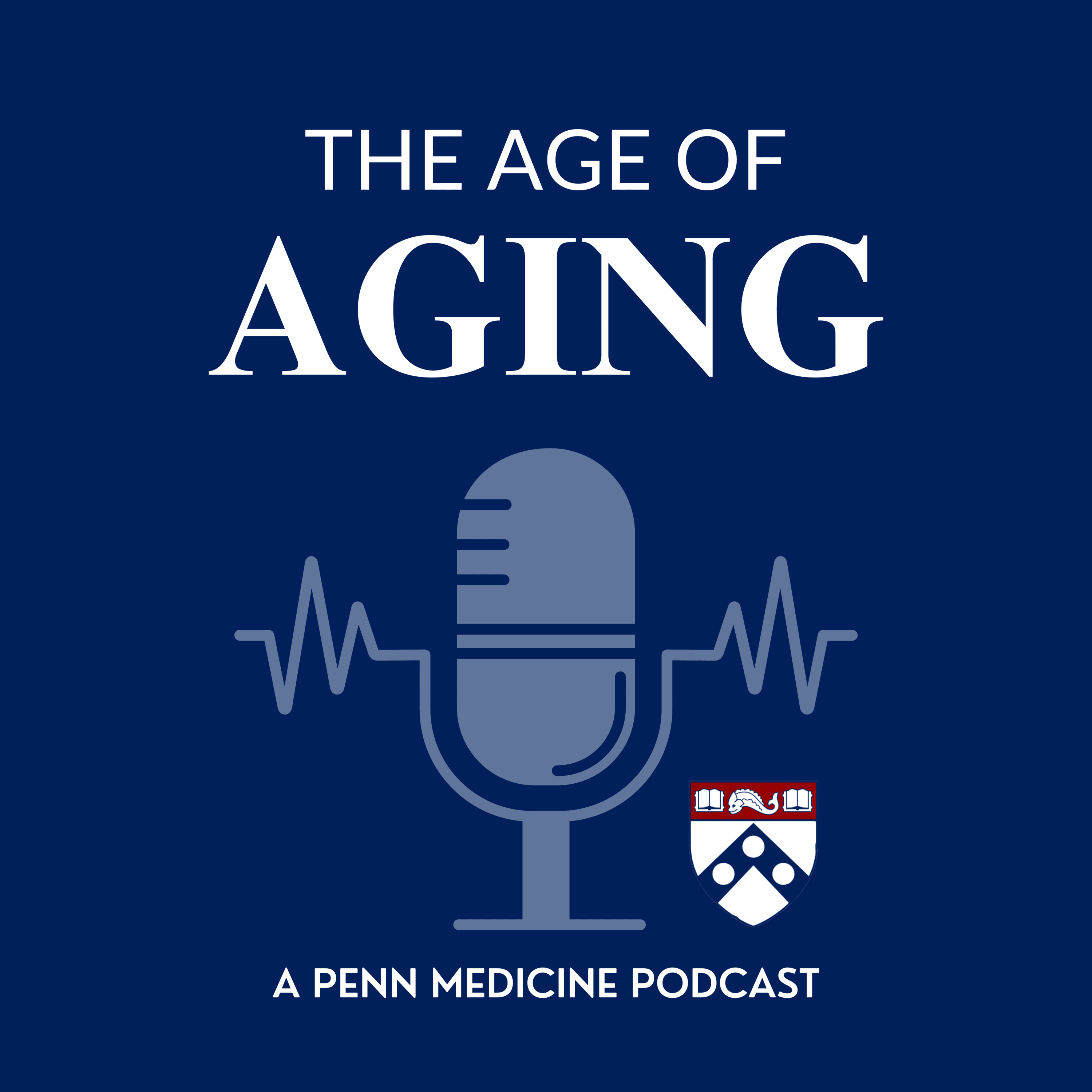 Age of AgingSeason 3 Finale: Neither Superheroes, Nor AngelsWhen we talk about dementia on this podcast, we are often talking about its most common cause: Alzheimer's disease. However, dementia has many causes, and among the most prevalent after Alzheimer’s is Lewy Body Disease. Though it can share similarities with Alzheimer’s, Lewy Body Dementia (LBD) has distinct symptoms and challenges that can complicate diagnosis, treatment, and caregiving.
On the season 3 finale of the Age of Aging, we explore Lewy Body Disease and its impact on caregivers and families.
We begin with a clip from the documentary Facing the Wind, which follows two caregive...2025-07-2241 min
Age of AgingSeason 3 Finale: Neither Superheroes, Nor AngelsWhen we talk about dementia on this podcast, we are often talking about its most common cause: Alzheimer's disease. However, dementia has many causes, and among the most prevalent after Alzheimer’s is Lewy Body Disease. Though it can share similarities with Alzheimer’s, Lewy Body Dementia (LBD) has distinct symptoms and challenges that can complicate diagnosis, treatment, and caregiving.
On the season 3 finale of the Age of Aging, we explore Lewy Body Disease and its impact on caregivers and families.
We begin with a clip from the documentary Facing the Wind, which follows two caregive...2025-07-2241 min Age of AgingOkay, Let's Talk About Sex and DementiaSex and intimacy can be difficult topics to navigate, especially for caregivers and their partners facing the challenges of a dementia diagnosis. These conversations are often avoided, yet the emotional toll of intimacy-related struggles can be profound, bringing feelings of grief, confusion, and isolation. The stigma surrounding sex and dementia only deepens this silence, making open dialogue all the more essential.
On this episode of The Age of Aging, we explore one caregiver’s deeply personal journey through love, loss, and change. Alison Lynn, Director of Social Work at the Penn Memory Center, speaks with author and advo...2025-07-0839 min
Age of AgingOkay, Let's Talk About Sex and DementiaSex and intimacy can be difficult topics to navigate, especially for caregivers and their partners facing the challenges of a dementia diagnosis. These conversations are often avoided, yet the emotional toll of intimacy-related struggles can be profound, bringing feelings of grief, confusion, and isolation. The stigma surrounding sex and dementia only deepens this silence, making open dialogue all the more essential.
On this episode of The Age of Aging, we explore one caregiver’s deeply personal journey through love, loss, and change. Alison Lynn, Director of Social Work at the Penn Memory Center, speaks with author and advo...2025-07-0839 min Age of AgingTransforming a System of CareThe U.S. healthcare system is changing—especially when it comes to caring for older adults. The COVID-19 pandemic revealed how vulnerable our aging population is, and how unprepared many parts of the system remain. Overstressed nursing homes, overworked primary care physicians, and a lack of accessible resources for dementia care remain persistent challenges.
But there’s hope. New technologies, treatments, and care models are reshaping what aging and diagnosis can look like. The question now is: How do we deliver these advances to the people that need them most?
In this episode of the Age of A...2025-06-2435 min
Age of AgingTransforming a System of CareThe U.S. healthcare system is changing—especially when it comes to caring for older adults. The COVID-19 pandemic revealed how vulnerable our aging population is, and how unprepared many parts of the system remain. Overstressed nursing homes, overworked primary care physicians, and a lack of accessible resources for dementia care remain persistent challenges.
But there’s hope. New technologies, treatments, and care models are reshaping what aging and diagnosis can look like. The question now is: How do we deliver these advances to the people that need them most?
In this episode of the Age of A...2025-06-2435 min Age of AgingEarly Onset CaregivingWe often think of dementia as something that affects the oldest among us, and that’s often true; at the Penn Memory Center, the average age of diagnosis is between 70 and 75. In most of those cases, caregiving falls to a spouse, partner, or adult child. But what happens when dementia is diagnosed before the age of 65?
In this episode of the Age of Aging, we explore early onset dementia and the young caregivers who step up when their lives are just beginning. The stories of teens and young adults reveal the unique challenges of caregiving and what the...2025-06-1040 min
Age of AgingEarly Onset CaregivingWe often think of dementia as something that affects the oldest among us, and that’s often true; at the Penn Memory Center, the average age of diagnosis is between 70 and 75. In most of those cases, caregiving falls to a spouse, partner, or adult child. But what happens when dementia is diagnosed before the age of 65?
In this episode of the Age of Aging, we explore early onset dementia and the young caregivers who step up when their lives are just beginning. The stories of teens and young adults reveal the unique challenges of caregiving and what the...2025-06-1040 min Science FridayWhat Huge Cuts To NSF Funding Mean For ScienceGrant funding by the National Science Foundation has been cut by more than half this year, bringing the foundation’s science funding to its lowest level in decades. Katrina Miller, who covers science for the New York Times, joins Host Flora Lichtman to unpack the cutbacks and discuss where the funding changes might lead.
And, the FDA has cleared a blood test to help diagnose Alzheimer’s disease. The first-of-its-kind test measures the levels of amyloid and tau proteins in a patient’s blood, two major biomarkers of the disease. Alzheimer’s researcher Jason Karlawish joins Flora to expla...2025-05-3020 min
Science FridayWhat Huge Cuts To NSF Funding Mean For ScienceGrant funding by the National Science Foundation has been cut by more than half this year, bringing the foundation’s science funding to its lowest level in decades. Katrina Miller, who covers science for the New York Times, joins Host Flora Lichtman to unpack the cutbacks and discuss where the funding changes might lead.
And, the FDA has cleared a blood test to help diagnose Alzheimer’s disease. The first-of-its-kind test measures the levels of amyloid and tau proteins in a patient’s blood, two major biomarkers of the disease. Alzheimer’s researcher Jason Karlawish joins Flora to expla...2025-05-3020 min Science FridayWhat Huge Cuts To NSF Funding Mean For ScienceGrant funding by the National Science Foundation has been cut by more than half this year, bringing the foundation’s science funding to its lowest level in decades. Katrina Miller, who covers science for the New York Times, joins Host Flora Lichtman to unpack the cutbacks and discuss where the funding changes might lead.And, the FDA has cleared a blood test to help diagnose Alzheimer’s disease. The first-of-its-kind test measures the levels of amyloid and tau proteins in a patient’s blood, two major biomarkers of the disease. Alzheimer’s researcher Jason Karlawish joins Flora to expla...2025-05-3019 min
Science FridayWhat Huge Cuts To NSF Funding Mean For ScienceGrant funding by the National Science Foundation has been cut by more than half this year, bringing the foundation’s science funding to its lowest level in decades. Katrina Miller, who covers science for the New York Times, joins Host Flora Lichtman to unpack the cutbacks and discuss where the funding changes might lead.And, the FDA has cleared a blood test to help diagnose Alzheimer’s disease. The first-of-its-kind test measures the levels of amyloid and tau proteins in a patient’s blood, two major biomarkers of the disease. Alzheimer’s researcher Jason Karlawish joins Flora to expla...2025-05-3019 min GeriPal - A Geriatrics and Palliative Medicine PodcastLucid Episodes: Andrea Gilmore-Bykovskyi & Andrew PetersonHave any of you watched the movie “The Notebook”? At the end, one of the characters, who has dementia, experiences an episode of lucidity. When I watched it, between tears (I’m a complete softie) I remember thinking, “Oh no! This will give people false hope! That their loved one is ‘in there.’ If only they could find the right key to unlock the lock and let them out.” Today we talk about lucid episodes and what they might mean to the person with dementia, their family and loved ones, to philosophers, to clinicians, to neuroscientists. Our guests are Andrea...2025-05-2948 min
GeriPal - A Geriatrics and Palliative Medicine PodcastLucid Episodes: Andrea Gilmore-Bykovskyi & Andrew PetersonHave any of you watched the movie “The Notebook”? At the end, one of the characters, who has dementia, experiences an episode of lucidity. When I watched it, between tears (I’m a complete softie) I remember thinking, “Oh no! This will give people false hope! That their loved one is ‘in there.’ If only they could find the right key to unlock the lock and let them out.” Today we talk about lucid episodes and what they might mean to the person with dementia, their family and loved ones, to philosophers, to clinicians, to neuroscientists. Our guests are Andrea...2025-05-2948 min Age of AgingFrom Surviving to Thriving After 50The world is getting older—and that reality is what inspired this podcast. Thanks to advances in medicine, healthier lifestyles, and improved living conditions, people are living longer than ever. That’s a good thing. However, longer lives will also require a lot of change from both individuals and society. We will have to prepare now for something earlier generations never considered possible: the second 50 years of our lives.
In this episode of the Age of Aging, Executive Producer Jason Karlawish speaks with Debra Whitman, Chief Public Policy Officer at AARP, about her new book, The Second Fifty...2025-05-2749 min
Age of AgingFrom Surviving to Thriving After 50The world is getting older—and that reality is what inspired this podcast. Thanks to advances in medicine, healthier lifestyles, and improved living conditions, people are living longer than ever. That’s a good thing. However, longer lives will also require a lot of change from both individuals and society. We will have to prepare now for something earlier generations never considered possible: the second 50 years of our lives.
In this episode of the Age of Aging, Executive Producer Jason Karlawish speaks with Debra Whitman, Chief Public Policy Officer at AARP, about her new book, The Second Fifty...2025-05-2749 min Age of AgingBefore I Go: Can We Talk?No one wants to think about their death, let alone talk about it. But having a meaningful conversation with your loved ones about your final days is one of the most important things you can do for them and yourself. End of life is a logistically and emotionally challenging time, so making critical decisions before the process of dying can save you and those around you from further stress and turmoil. Luckily, some experts can help you navigate this time's many legal and emotional complexities.
On this episode of the Age of Aging, we are talking about de...2025-05-1337 min
Age of AgingBefore I Go: Can We Talk?No one wants to think about their death, let alone talk about it. But having a meaningful conversation with your loved ones about your final days is one of the most important things you can do for them and yourself. End of life is a logistically and emotionally challenging time, so making critical decisions before the process of dying can save you and those around you from further stress and turmoil. Luckily, some experts can help you navigate this time's many legal and emotional complexities.
On this episode of the Age of Aging, we are talking about de...2025-05-1337 min Age of AgingDiet, Exercise and.... Doodling?At the Penn Memory Center, one of the most common questions we hear is: What can I do to keep my brain healthy as I age?
We often reference diet and exercise as essential tools when it comes to maintaining a healthy brain. There’s another, often-overlooked way to boost brain health, fight depression, and support cognitive resilience. It’s not a pill. It’s not a trend. It’s something far more human: our hands.
On this episode of the Age of Aging, we explore the power of our hands and why using them intentionall...2025-04-2941 min
Age of AgingDiet, Exercise and.... Doodling?At the Penn Memory Center, one of the most common questions we hear is: What can I do to keep my brain healthy as I age?
We often reference diet and exercise as essential tools when it comes to maintaining a healthy brain. There’s another, often-overlooked way to boost brain health, fight depression, and support cognitive resilience. It’s not a pill. It’s not a trend. It’s something far more human: our hands.
On this episode of the Age of Aging, we explore the power of our hands and why using them intentionall...2025-04-2941 min Age of Aging"I Had My Old Girl Back"In dementia care and research, it’s widely accepted that people living with advanced dementia often lose the ability to connect and communicate as they once did. However, one phenomenon has been the exception to the rule. “Paradoxical lucidity” is a term used to describe brief moments in which individuals with severe dementia suddenly regain clarity, communicate, and reconnect in ways thought to be long lost. While care partners witness and commonly share experiences with clinicians like Dr. Jason Karlawish, paradoxical lucidity remains understudied. In a recent study, Dr. Karlawish partnered with anthropologist Dr. Justin Clapp to explore the meanin...2025-04-1539 min
Age of Aging"I Had My Old Girl Back"In dementia care and research, it’s widely accepted that people living with advanced dementia often lose the ability to connect and communicate as they once did. However, one phenomenon has been the exception to the rule. “Paradoxical lucidity” is a term used to describe brief moments in which individuals with severe dementia suddenly regain clarity, communicate, and reconnect in ways thought to be long lost. While care partners witness and commonly share experiences with clinicians like Dr. Jason Karlawish, paradoxical lucidity remains understudied. In a recent study, Dr. Karlawish partnered with anthropologist Dr. Justin Clapp to explore the meanin...2025-04-1539 min Age of AgingWhat Does Spring Smell Like?What does spring smell like?
What do you think is a beautiful sound?
If those questions made you pause for a second and reflect, that’s exactly the point. These are examples of “beautiful questions,” open-ended prompts designed to push you beyond your everyday thinking and invite you to look at the world a little differently. Writer and artist Anne Basting developed beautiful questions as a way to creatively engage people, particularly older adults with impaired cognition. These questions are part of what Dr. Basting calls “creative care,” a method that fosters meaning, conversation, and storytelling f...2025-03-2510 min
Age of AgingWhat Does Spring Smell Like?What does spring smell like?
What do you think is a beautiful sound?
If those questions made you pause for a second and reflect, that’s exactly the point. These are examples of “beautiful questions,” open-ended prompts designed to push you beyond your everyday thinking and invite you to look at the world a little differently. Writer and artist Anne Basting developed beautiful questions as a way to creatively engage people, particularly older adults with impaired cognition. These questions are part of what Dr. Basting calls “creative care,” a method that fosters meaning, conversation, and storytelling f...2025-03-2510 min All Home Care MattersThe Co-Director of the Penn Memory Center Dr. Jason KarlawishAll Home Care Matters and our host, Lance A. Slatton were honored to welcome back Dr. Jason Karlawish. About Dr. Jason Karlawish: Dr. Jason Karlawish is a physician, writer, and professor at the University of Pennsylvania. He researches bioethics, aging, and neuroscience and co-directs the Penn Memory Center, where he cares for patients. He is the author of The Problem of Alzheimer’s and Open Wound and has written for The New York Times, The Wall Street Journal, The Washington Post, and more. He serves on the board...2025-02-2648 min
All Home Care MattersThe Co-Director of the Penn Memory Center Dr. Jason KarlawishAll Home Care Matters and our host, Lance A. Slatton were honored to welcome back Dr. Jason Karlawish. About Dr. Jason Karlawish: Dr. Jason Karlawish is a physician, writer, and professor at the University of Pennsylvania. He researches bioethics, aging, and neuroscience and co-directs the Penn Memory Center, where he cares for patients. He is the author of The Problem of Alzheimer’s and Open Wound and has written for The New York Times, The Wall Street Journal, The Washington Post, and more. He serves on the board...2025-02-2648 min Age of AgingDementia in 2025: An Expert RoundtableWelcome to a special bonus episode of the Age of Aging! As we bring in the New Year, we're taking a moment to reflect on the key milestones in dementia research and clinical care from 2024 and share our excitement for what's ahead in 2025. Today’s episode features a conversation between three distinguished leaders in dementia research and clinical care at Penn Medicine and beyond.
Dr. Jason Karlawish is a geriatrician and co-directs the Penn Memory Center. Dr. David Wolk co-directs the Penn Memory Center as well as the Institute on Aging, and is a cognitive neuro...2025-01-2136 min
Age of AgingDementia in 2025: An Expert RoundtableWelcome to a special bonus episode of the Age of Aging! As we bring in the New Year, we're taking a moment to reflect on the key milestones in dementia research and clinical care from 2024 and share our excitement for what's ahead in 2025. Today’s episode features a conversation between three distinguished leaders in dementia research and clinical care at Penn Medicine and beyond.
Dr. Jason Karlawish is a geriatrician and co-directs the Penn Memory Center. Dr. David Wolk co-directs the Penn Memory Center as well as the Institute on Aging, and is a cognitive neuro...2025-01-2136 min Better Health While Aging152 – Inside Alzheimer’s Research: New Medications and Innovative CareDr. K speaks with Alzheimer’s expert Jason Karlawish, MD, about the new anti-amyloid Alzheimer’s medications lecanemab (Leqembi) and donanemab (Kisunla). They discuss how biomarkers have changed diagnosing Alzheimer’s disease, how well these new drugs work, and much more.2024-12-1359 min
Better Health While Aging152 – Inside Alzheimer’s Research: New Medications and Innovative CareDr. K speaks with Alzheimer’s expert Jason Karlawish, MD, about the new anti-amyloid Alzheimer’s medications lecanemab (Leqembi) and donanemab (Kisunla). They discuss how biomarkers have changed diagnosing Alzheimer’s disease, how well these new drugs work, and much more.2024-12-1359 min Age of AgingSeason 2 Finale: Ideas We Should StealIt’s the season 2 finale of the Age of Aging! To celebrate, we welcomed back guests from Seasons 1 and 2 and asked them to dream big to improve aging in America.
In this episode, you’ll hear a wide range of ideas: from integrated child and eldercare to ballet training for young adults to walkable communities and many more. This episode is an opportunity to think idealistically about the world, hear ideas from people in the Penn Memory Center community, and develop some ideas of your own.
Season 3 of the Age of Aging will begin early next ye...2024-12-1043 min
Age of AgingSeason 2 Finale: Ideas We Should StealIt’s the season 2 finale of the Age of Aging! To celebrate, we welcomed back guests from Seasons 1 and 2 and asked them to dream big to improve aging in America.
In this episode, you’ll hear a wide range of ideas: from integrated child and eldercare to ballet training for young adults to walkable communities and many more. This episode is an opportunity to think idealistically about the world, hear ideas from people in the Penn Memory Center community, and develop some ideas of your own.
Season 3 of the Age of Aging will begin early next ye...2024-12-1043 min Age of AgingHoliday Caregiving TipsThe holidays are a time for celebration, joy, and being with loved ones. Unfortunately, it can also be a time that brings stress and anxiety. Between travel, shopping, and managing family dynamics, this season can feel overwhelming. For caregivers and individuals with dementia, these challenges are often magnified. Travel and social gatherings can pose unique difficulties, leaving many caregivers wondering: What will the holidays look like for my loved one and me this year?
To help you answer this question, we sat down with Director of Social Work at the Penn Memory Center, Alison Lynn, to explore s...2024-11-2629 min
Age of AgingHoliday Caregiving TipsThe holidays are a time for celebration, joy, and being with loved ones. Unfortunately, it can also be a time that brings stress and anxiety. Between travel, shopping, and managing family dynamics, this season can feel overwhelming. For caregivers and individuals with dementia, these challenges are often magnified. Travel and social gatherings can pose unique difficulties, leaving many caregivers wondering: What will the holidays look like for my loved one and me this year?
To help you answer this question, we sat down with Director of Social Work at the Penn Memory Center, Alison Lynn, to explore s...2024-11-2629 min Age of AgingBuilding TrustProviding equitable aging research and care faces a major barrier: minorities that are disproportionately impacted by dementia are greatly underrepresented. Data shows that Black and African American individuals are twice as a likely to develop dementia. Hispanic and Latino populations are one and a half times as likely. At the core of this issue is what researchers call social and structural determinants of health (SSDOH). These are the ways our health is impacted by social factors in our environment, poverty, racism, and limited access to healthy food. Outreach is the central way research centers, such as those at the...2024-11-1229 min
Age of AgingBuilding TrustProviding equitable aging research and care faces a major barrier: minorities that are disproportionately impacted by dementia are greatly underrepresented. Data shows that Black and African American individuals are twice as a likely to develop dementia. Hispanic and Latino populations are one and a half times as likely. At the core of this issue is what researchers call social and structural determinants of health (SSDOH). These are the ways our health is impacted by social factors in our environment, poverty, racism, and limited access to healthy food. Outreach is the central way research centers, such as those at the...2024-11-1229 min Age of AgingWhat's Your Voting Plan?This November, millions of Americans will head to the polls for the 2024 presidential election. But while the right to vote is essential to our democracy, unfortunately, the process of voting can present unique challenges for individuals with disabilities like dementia, often requiring outside assistance. If you’re a caregiver, how much can you help someone vote? What kind of assistance is available to those with dementia?
On episode 3 of the Age of Aging, we look at voting, and what the process means for individuals with dementia and their caregivers.
We begin by talking with Dr. Jason...2024-10-2927 min
Age of AgingWhat's Your Voting Plan?This November, millions of Americans will head to the polls for the 2024 presidential election. But while the right to vote is essential to our democracy, unfortunately, the process of voting can present unique challenges for individuals with disabilities like dementia, often requiring outside assistance. If you’re a caregiver, how much can you help someone vote? What kind of assistance is available to those with dementia?
On episode 3 of the Age of Aging, we look at voting, and what the process means for individuals with dementia and their caregivers.
We begin by talking with Dr. Jason...2024-10-2927 min Age of AgingArts on the MindAn Alzheimer's doctor goes to the opera...This isn't the start of a bad joke; it's the result of a collaboration between the Penn Memory Center and leaders of Philadelphia's arts community. The first of its kind at PMC, the Arts on the Mind Festival explored the intersection of the mind and art over a two-month event span. Music, literature, visual art, and film were all featured as mediums to better understand the importance of art in our lives and even how art can be used to help those with cognitive impairment.
On episode 2 of the Age of...2024-10-1527 min
Age of AgingArts on the MindAn Alzheimer's doctor goes to the opera...This isn't the start of a bad joke; it's the result of a collaboration between the Penn Memory Center and leaders of Philadelphia's arts community. The first of its kind at PMC, the Arts on the Mind Festival explored the intersection of the mind and art over a two-month event span. Music, literature, visual art, and film were all featured as mediums to better understand the importance of art in our lives and even how art can be used to help those with cognitive impairment.
On episode 2 of the Age of...2024-10-1527 min Age of AgingIn Sickness and in HealthOver the past two years, the world has seen major developments in Alzheimer’s disease treatment with the release of two new medications: Lecanamab, marketed as Leqembi, and Donanemab, marketed as Kisunla. These two treatments are the first of their kind to reduce the physical signs of Alzheimer’s disease in the brain and potentially slow down the progression of cognitive decline.
In the premiere episode of season 2 of the Age of Aging, we explore these new anti-amyloid therapies, what they are, and how they may change the lives of patients and caregivers.
We begin with...2024-10-0122 min
Age of AgingIn Sickness and in HealthOver the past two years, the world has seen major developments in Alzheimer’s disease treatment with the release of two new medications: Lecanamab, marketed as Leqembi, and Donanemab, marketed as Kisunla. These two treatments are the first of their kind to reduce the physical signs of Alzheimer’s disease in the brain and potentially slow down the progression of cognitive decline.
In the premiere episode of season 2 of the Age of Aging, we explore these new anti-amyloid therapies, what they are, and how they may change the lives of patients and caregivers.
We begin with...2024-10-0122 min Age of AgingWhat's Next for the Age of AgingThe first four episodes mark the end of the first season of the Age of Aging. But don’t worry! The second season of the Age of Aging will resume two weeks from now. With a slightly different format, the stories of Season 2 will feature old and new voices from researchers, clinicians, and patients.
In this episode, hosts Terrence and Jake reflect on their favorite stories from season one, share feedback from listeners, and talk about the lessons learned along the way. They’ll also give you a sneak peek into season two, highlighting some of the s...2024-09-1709 min
Age of AgingWhat's Next for the Age of AgingThe first four episodes mark the end of the first season of the Age of Aging. But don’t worry! The second season of the Age of Aging will resume two weeks from now. With a slightly different format, the stories of Season 2 will feature old and new voices from researchers, clinicians, and patients.
In this episode, hosts Terrence and Jake reflect on their favorite stories from season one, share feedback from listeners, and talk about the lessons learned along the way. They’ll also give you a sneak peek into season two, highlighting some of the s...2024-09-1709 min Age of AgingDiagnosing DementiaDiagnostic testing is at the heart of both the clinical care and research at the Penn Memory Center. Patients and research participants alike undergo various diagnostics such as PET scans, MRI scans, and cognitive tests. These tools help clinicians turn symptoms such as dementia into a diagnosis like Alzheimer’s disease. But what are these tests? And what can they actually tell us about aging?
On Episode 4 of the Age of Aging, we examine the full diagnostic experience.
Our first segment explores MRI and PET scans and what they tell us about t...2024-09-0341 min
Age of AgingDiagnosing DementiaDiagnostic testing is at the heart of both the clinical care and research at the Penn Memory Center. Patients and research participants alike undergo various diagnostics such as PET scans, MRI scans, and cognitive tests. These tools help clinicians turn symptoms such as dementia into a diagnosis like Alzheimer’s disease. But what are these tests? And what can they actually tell us about aging?
On Episode 4 of the Age of Aging, we examine the full diagnostic experience.
Our first segment explores MRI and PET scans and what they tell us about t...2024-09-0341 min Age of AgingThe Caregiving EpisodeWe often think of Alzheimer’s disease and other causes of dementia in terms of their impact on the individual living with the disease. Of course, this is with good reason: a person with an age-related neurological disease will experience difficulties in their day-to-day life incomprehensible to most others. However, for every patient, there is one person or many people caring for that person daily. Caregivers do the often unsung physical and emotional labor of dementia, making sure a person is safe, healthy, and living as comfortably as they can be.
In honor of this impor...2024-08-2034 min
Age of AgingThe Caregiving EpisodeWe often think of Alzheimer’s disease and other causes of dementia in terms of their impact on the individual living with the disease. Of course, this is with good reason: a person with an age-related neurological disease will experience difficulties in their day-to-day life incomprehensible to most others. However, for every patient, there is one person or many people caring for that person daily. Caregivers do the often unsung physical and emotional labor of dementia, making sure a person is safe, healthy, and living as comfortably as they can be.
In honor of this impor...2024-08-2034 min Age of AgingLiving Well with PurposeWe all hope that we can age with as much independence, purpose, and well-being as possible in our later years. Unfortunately, aging is never so straightforward and we will all face our own unique challenges and complexities as we get older. So, with all this uncertainty, how do we get the most out of this later stage of life?
In our second episode of the Age of Aging, we explore stories about maintaining dignity, health, and a sense of meaning in our older years.
Our first story will look at a new mo...2024-08-0642 min
Age of AgingLiving Well with PurposeWe all hope that we can age with as much independence, purpose, and well-being as possible in our later years. Unfortunately, aging is never so straightforward and we will all face our own unique challenges and complexities as we get older. So, with all this uncertainty, how do we get the most out of this later stage of life?
In our second episode of the Age of Aging, we explore stories about maintaining dignity, health, and a sense of meaning in our older years.
Our first story will look at a new mo...2024-08-0642 min Age of AgingDo I Want to Know?Clinical advancements have made it easier than ever to learn your personal risk of developing age-related diseases such as Alzheimer’s. Through genetic testing or biomarker measurement, you can learn if you’re more likely than your peers to develop dementia as you age.
Do you want to know?
In our first episode of the Age of Aging, we explore exactly that question.
First, we’ll hear about the role of genetic counselors in guiding people through the process of genetic testing. In our second story, Dr. Emily Largent discusses how people react to lear...2024-07-2345 min
Age of AgingDo I Want to Know?Clinical advancements have made it easier than ever to learn your personal risk of developing age-related diseases such as Alzheimer’s. Through genetic testing or biomarker measurement, you can learn if you’re more likely than your peers to develop dementia as you age.
Do you want to know?
In our first episode of the Age of Aging, we explore exactly that question.
First, we’ll hear about the role of genetic counselors in guiding people through the process of genetic testing. In our second story, Dr. Emily Largent discusses how people react to lear...2024-07-2345 min Free Library PodcastDasha Kiper | Travelers to Unimaginable Lands: Stories of Dementia, the Caregivers, and the Human BrainIn conversation with Dr. Jason Karlawish
In partnership with the Philadelphia Chamber Music Society
The clinical consulting director of support groups at The CaringKind (formerly The Alzheimer's Association), Dasha Kiper has an MA in clinical psychology from Columbia University. For the past decade she has worked with dementia patients, counseled caregivers, led support groups, trained and supervised mental health professionals, and counseled former caregivers who now lead support groups. Informed by her work as both a counselor and work as a caregiver herself, Travelers to Unimaginable Lands employs a wide range of compassionate stories to combat the myth of the so-ca...2024-05-0156 min
Free Library PodcastDasha Kiper | Travelers to Unimaginable Lands: Stories of Dementia, the Caregivers, and the Human BrainIn conversation with Dr. Jason Karlawish
In partnership with the Philadelphia Chamber Music Society
The clinical consulting director of support groups at The CaringKind (formerly The Alzheimer's Association), Dasha Kiper has an MA in clinical psychology from Columbia University. For the past decade she has worked with dementia patients, counseled caregivers, led support groups, trained and supervised mental health professionals, and counseled former caregivers who now lead support groups. Informed by her work as both a counselor and work as a caregiver herself, Travelers to Unimaginable Lands employs a wide range of compassionate stories to combat the myth of the so-ca...2024-05-0156 min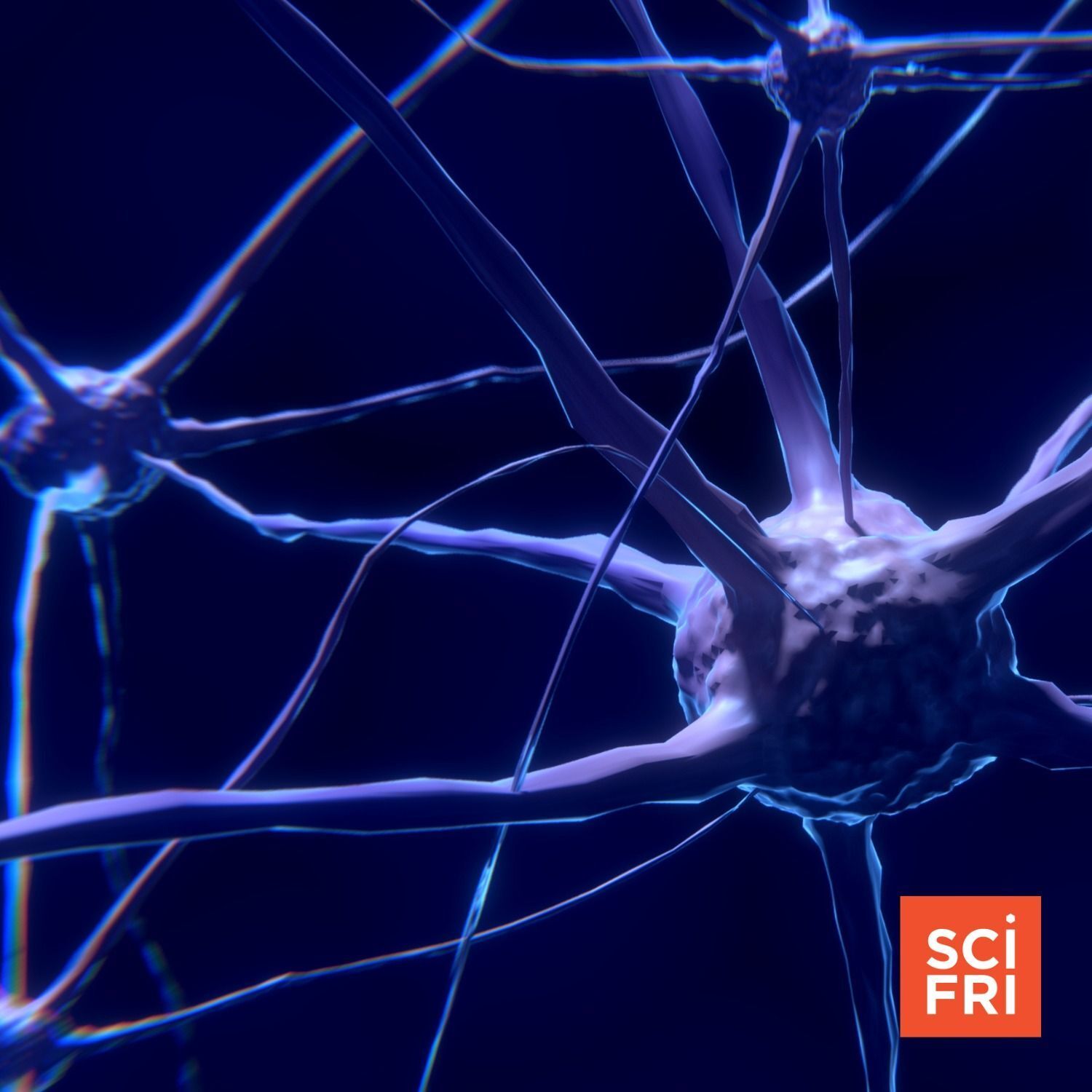 Science FridayThe Bumpy Road To Approving New Alzheimer’s DrugsIn the past few years pharmaceutical companies have developed a string of new Alzheimer’s drugs called anti-amyloids, which target amyloid plaques in patients’ brains. These plaques are one of the key biomarkers of the disease.
The first of these drugs, Aduhelm, was approved by the FDA in 2021 amid enormous controversy. The FDA approved the drug despite little evidence that it actually slowed cognitive decline in patients. Biogen, the maker of Aduhelm, pulled the plug on further research or sales of the drug last month.
In January 2023 The FDA approved another anti-amyloid medication from Biogen, leca...2024-04-0218 min
Science FridayThe Bumpy Road To Approving New Alzheimer’s DrugsIn the past few years pharmaceutical companies have developed a string of new Alzheimer’s drugs called anti-amyloids, which target amyloid plaques in patients’ brains. These plaques are one of the key biomarkers of the disease.
The first of these drugs, Aduhelm, was approved by the FDA in 2021 amid enormous controversy. The FDA approved the drug despite little evidence that it actually slowed cognitive decline in patients. Biogen, the maker of Aduhelm, pulled the plug on further research or sales of the drug last month.
In January 2023 The FDA approved another anti-amyloid medication from Biogen, leca...2024-04-0218 min Navigating the World with Your Aging Loved One"The Problem of Alzheimer's: How Science, Culture, and Politics Turned a Rare Disease into a Crisis and What We Can Do About It" with Dr. Jason Karlawish, M.D. What does it mean to live a good life when the very essence of your memory and autonomy begins to fade? In a world where aging is inevitable, the challenges of neurodegenerative diseases like Alzheimer's pose profound questions about identity, care, and dignity. Today, I'm honored to have a conversation with Dr. Jason Karlawish. He is the author of The Problem of Alzheimer's: How Science, Culture, and Politics Turned a Rare Disease into a Crisis and What We Can Do About It. As a professor of medicine, medical ethics, health policy, and neurology at the University of...2024-03-0651 min
Navigating the World with Your Aging Loved One"The Problem of Alzheimer's: How Science, Culture, and Politics Turned a Rare Disease into a Crisis and What We Can Do About It" with Dr. Jason Karlawish, M.D. What does it mean to live a good life when the very essence of your memory and autonomy begins to fade? In a world where aging is inevitable, the challenges of neurodegenerative diseases like Alzheimer's pose profound questions about identity, care, and dignity. Today, I'm honored to have a conversation with Dr. Jason Karlawish. He is the author of The Problem of Alzheimer's: How Science, Culture, and Politics Turned a Rare Disease into a Crisis and What We Can Do About It. As a professor of medicine, medical ethics, health policy, and neurology at the University of...2024-03-0651 min GeriPal - A Geriatrics and Palliative Medicine PodcastRedefining Alzheimer's Disease: A Podcast with Heather Whitson, Jason Karlawish, Lon SchneiderThere is a growing push to change how we define Alzheimer's disease from what was historically a clinically defined syndrome to a newer biological definition based on the presence of positive amyloid biomarkers. This proposed new definition, championed by the Alzheimer's Association (AA) and the National Institute on Aging (NIA), proposes that the disease exists when the earliest manifestation of Alzheimer’s pathophysiology can be detected (amyloid), even though onset of symptoms may be years in the future. On today's podcast we talk about the benefits and drawbacks of redefining Alzheimers to a biological definition with three ex...2023-12-0151 min
GeriPal - A Geriatrics and Palliative Medicine PodcastRedefining Alzheimer's Disease: A Podcast with Heather Whitson, Jason Karlawish, Lon SchneiderThere is a growing push to change how we define Alzheimer's disease from what was historically a clinically defined syndrome to a newer biological definition based on the presence of positive amyloid biomarkers. This proposed new definition, championed by the Alzheimer's Association (AA) and the National Institute on Aging (NIA), proposes that the disease exists when the earliest manifestation of Alzheimer’s pathophysiology can be detected (amyloid), even though onset of symptoms may be years in the future. On today's podcast we talk about the benefits and drawbacks of redefining Alzheimers to a biological definition with three ex...2023-12-0151 min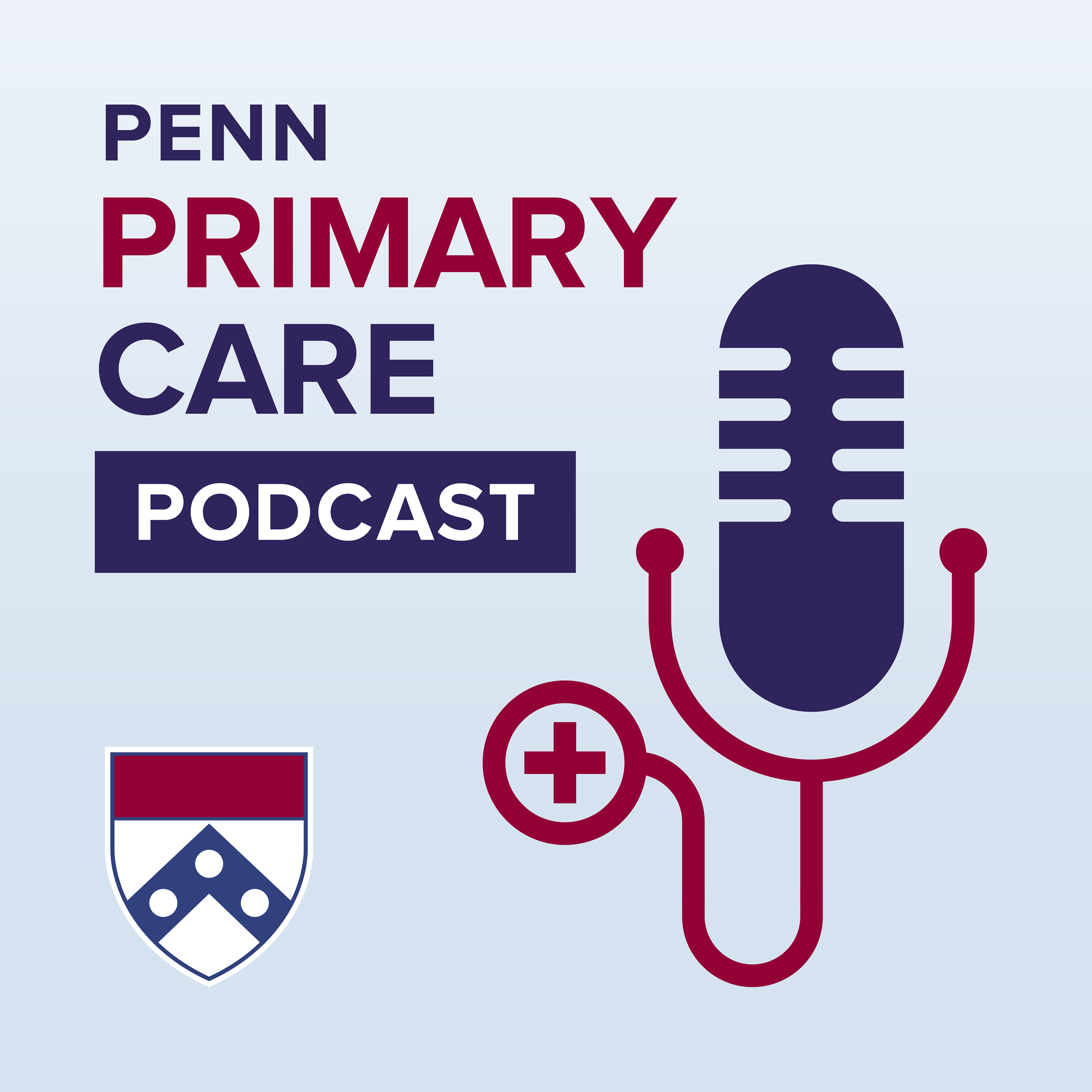 Penn Primary Care PodcastDementia Part 2- Alzheimer's DiseaseIn this podcast, Dr Williams continues the discussion with Dr Jason Karlawish of the Penn Memory Center with a deep dive into the Alzheimer's Disease diagnosis and emerging therapies.2023-11-2200 min
Penn Primary Care PodcastDementia Part 2- Alzheimer's DiseaseIn this podcast, Dr Williams continues the discussion with Dr Jason Karlawish of the Penn Memory Center with a deep dive into the Alzheimer's Disease diagnosis and emerging therapies.2023-11-2200 min Penn Primary Care PodcastDementia Diagnosis and Management- Part 1In this podcast, Dr. Williams speaks with Dr. Jason Karlawish, Co-director of the Penn Memory Center and national expert on neurodegenerative diseases, about the evaluation and diagnosis of cognitive impairment, highlighting the various dementia subtypes and how to distinguish between them.2023-11-0700 min
Penn Primary Care PodcastDementia Diagnosis and Management- Part 1In this podcast, Dr. Williams speaks with Dr. Jason Karlawish, Co-director of the Penn Memory Center and national expert on neurodegenerative diseases, about the evaluation and diagnosis of cognitive impairment, highlighting the various dementia subtypes and how to distinguish between them.2023-11-0700 min Voices of Aging with ASIG2023-9 Dementia Care Insights and Best Practices with Dr. Jason KarlawishIn this exciting episode, the Voices in Aging podcast is delighted to welcome Dr. Jason Karlawish, a nationally recognized expert and celebrated speaker in the field of dementia research. Dr. Karlawish delves into the intricate world of dementia care, sharing poignant stories and insightful findings he’s gathered throughout his career. His unique perspective reveals both the challenges and triumphs faced by individuals living with dementia and their dedicated caregivers. Dr. Karlawish's profound insights illuminate the often-hidden dynamics within these relationships while offering invaluable, practical tips and best practices. Join us for a thought-provoking exploration of dementia and caregiving.
The Vo...2023-10-2325 min
Voices of Aging with ASIG2023-9 Dementia Care Insights and Best Practices with Dr. Jason KarlawishIn this exciting episode, the Voices in Aging podcast is delighted to welcome Dr. Jason Karlawish, a nationally recognized expert and celebrated speaker in the field of dementia research. Dr. Karlawish delves into the intricate world of dementia care, sharing poignant stories and insightful findings he’s gathered throughout his career. His unique perspective reveals both the challenges and triumphs faced by individuals living with dementia and their dedicated caregivers. Dr. Karlawish's profound insights illuminate the often-hidden dynamics within these relationships while offering invaluable, practical tips and best practices. Join us for a thought-provoking exploration of dementia and caregiving.
The Vo...2023-10-2325 min The Reflective Mind PodcastSaving Our Memories: Understanding Alzheimer's Disease with Dr. Jason Karlawish, MDConcerned about your aging loved ones?In today's episode, hear about the remarkable ongoing research in Alzheimer's Disease, including advances in diagnosis and treatment. Every year there are more options to slow memory loss and prolong meaningful life, bringing hope to individuals around the world. Join Jennifer Reid, MD as she interviews Jason Karlawish, MD, a professor of medicine, medical ethics and health policy, and neurology at the University of Pennsylvania Perelman School of Medicine. He is co-associate director of the Alzheimer’s Disease Research Center and co-director of the Penn Memory Center. He...2023-10-0242 min
The Reflective Mind PodcastSaving Our Memories: Understanding Alzheimer's Disease with Dr. Jason Karlawish, MDConcerned about your aging loved ones?In today's episode, hear about the remarkable ongoing research in Alzheimer's Disease, including advances in diagnosis and treatment. Every year there are more options to slow memory loss and prolong meaningful life, bringing hope to individuals around the world. Join Jennifer Reid, MD as she interviews Jason Karlawish, MD, a professor of medicine, medical ethics and health policy, and neurology at the University of Pennsylvania Perelman School of Medicine. He is co-associate director of the Alzheimer’s Disease Research Center and co-director of the Penn Memory Center. He...2023-10-0242 min GeriPal - A Geriatrics and Palliative Medicine PodcastAmyloid Antibodies and the Role of the Geriatrician: Nate Chin, Sharon Brangman, and Jason KarlawishIt's been over two years since one of the worst product launches of all time - Aduhelm (aducanumab). Praised by the FDA, Alzheimer’s Association (AA), and Pharma as a “game changer”, but derided by others for the drug’s lack of clinical efficacy, risk of severe adverse effects, absence of diversity in trial populations, high costs, and an FDA approval process that was in the kindest words “rife with irregularities”. Instead of Biogen’s expected billions of dollars of revenue from Aduhelm, they brought in only $3 million in revenue for all of 2021 (here is my Twitter summary of this fiasco).2023-08-1750 min
GeriPal - A Geriatrics and Palliative Medicine PodcastAmyloid Antibodies and the Role of the Geriatrician: Nate Chin, Sharon Brangman, and Jason KarlawishIt's been over two years since one of the worst product launches of all time - Aduhelm (aducanumab). Praised by the FDA, Alzheimer’s Association (AA), and Pharma as a “game changer”, but derided by others for the drug’s lack of clinical efficacy, risk of severe adverse effects, absence of diversity in trial populations, high costs, and an FDA approval process that was in the kindest words “rife with irregularities”. Instead of Biogen’s expected billions of dollars of revenue from Aduhelm, they brought in only $3 million in revenue for all of 2021 (here is my Twitter summary of this fiasco).2023-08-1750 min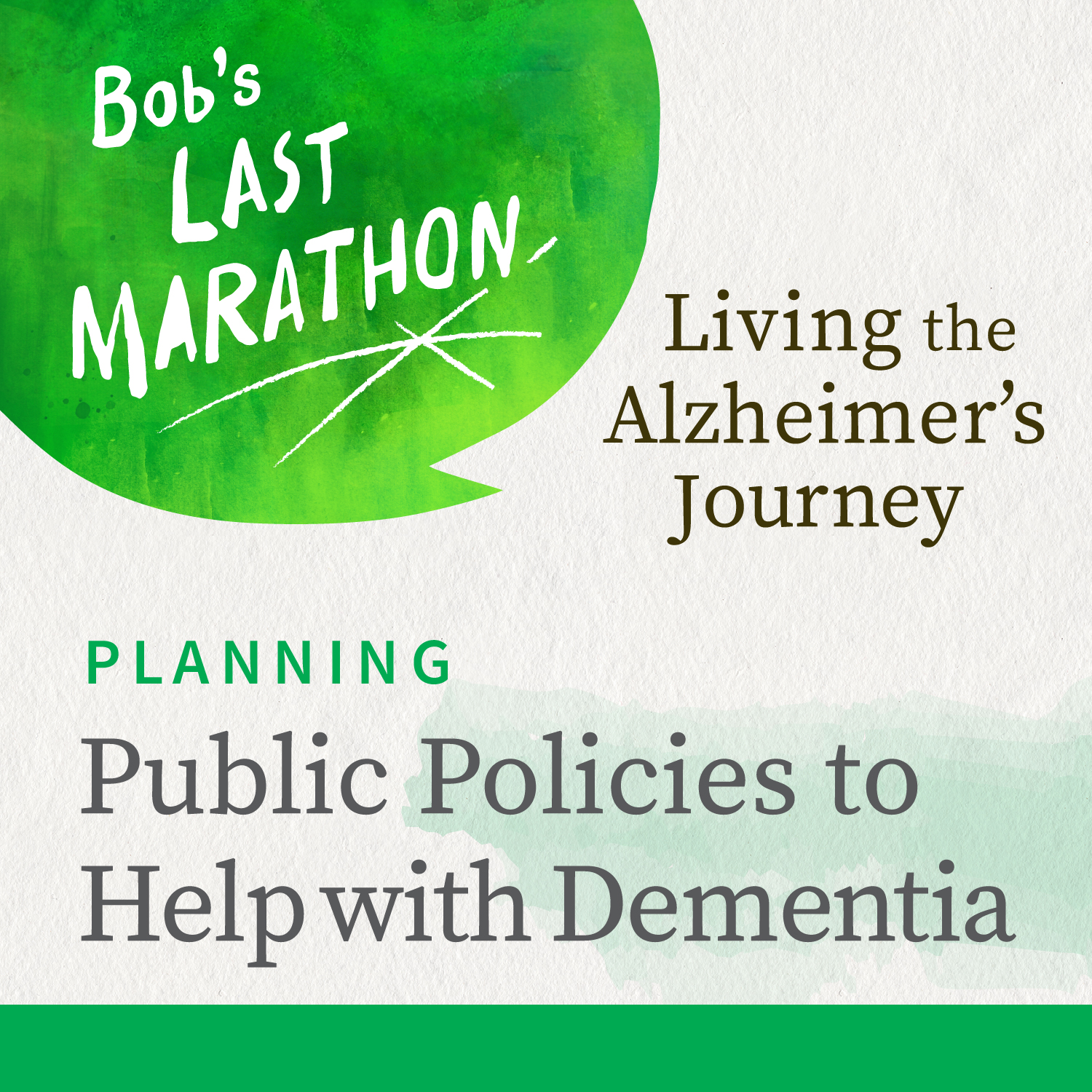 Bob's Last MarathonPublic Policies to Help Us Live Well with DementiaDr. Jason Karlawish talks about living with dementia and disabling cognitive impairments in the context of today’s public policies that places the burden of care on the American family, and points out gaps in today’s public policies that must be remedied. He explains the concept of custodial care, and how long-term care services and supports are not included in Medicare. He speaks about the need to improve the quality of residential care and cites the success of government-backed programs in other countries. Additionally, Dr. Karlawish points out the importance of supportive decision making, and helping people in the earl...2023-02-1516 min
Bob's Last MarathonPublic Policies to Help Us Live Well with DementiaDr. Jason Karlawish talks about living with dementia and disabling cognitive impairments in the context of today’s public policies that places the burden of care on the American family, and points out gaps in today’s public policies that must be remedied. He explains the concept of custodial care, and how long-term care services and supports are not included in Medicare. He speaks about the need to improve the quality of residential care and cites the success of government-backed programs in other countries. Additionally, Dr. Karlawish points out the importance of supportive decision making, and helping people in the earl...2023-02-1516 min GeriPal - A Geriatrics and Palliative Medicine PodcastIs it time for geriatricians to get on board with lecanemab? Jason Karlawish and Ken CovinskyWe’ve talked at length on prior podcasts about the failures of aducnumab, Biogen, and the FDA’s decision to approve it. But wait, there’s a shiny new anti-amyloid drug, lecanemab! (No it’s not just the French version of Aducanumab). In an article in the NEJM (a published article this time, wonder of wonders!) lecanemab was shown to slow the rate of cognitive decline by 0.45 points on an 18 point cognitive scale compared to placebo. Wow! Wow? Wait, what? On today’s podcast we talk with Jason Karlawish, who we’ve had on previously talking...2022-12-1549 min
GeriPal - A Geriatrics and Palliative Medicine PodcastIs it time for geriatricians to get on board with lecanemab? Jason Karlawish and Ken CovinskyWe’ve talked at length on prior podcasts about the failures of aducnumab, Biogen, and the FDA’s decision to approve it. But wait, there’s a shiny new anti-amyloid drug, lecanemab! (No it’s not just the French version of Aducanumab). In an article in the NEJM (a published article this time, wonder of wonders!) lecanemab was shown to slow the rate of cognitive decline by 0.45 points on an 18 point cognitive scale compared to placebo. Wow! Wow? Wait, what? On today’s podcast we talk with Jason Karlawish, who we’ve had on previously talking...2022-12-1549 min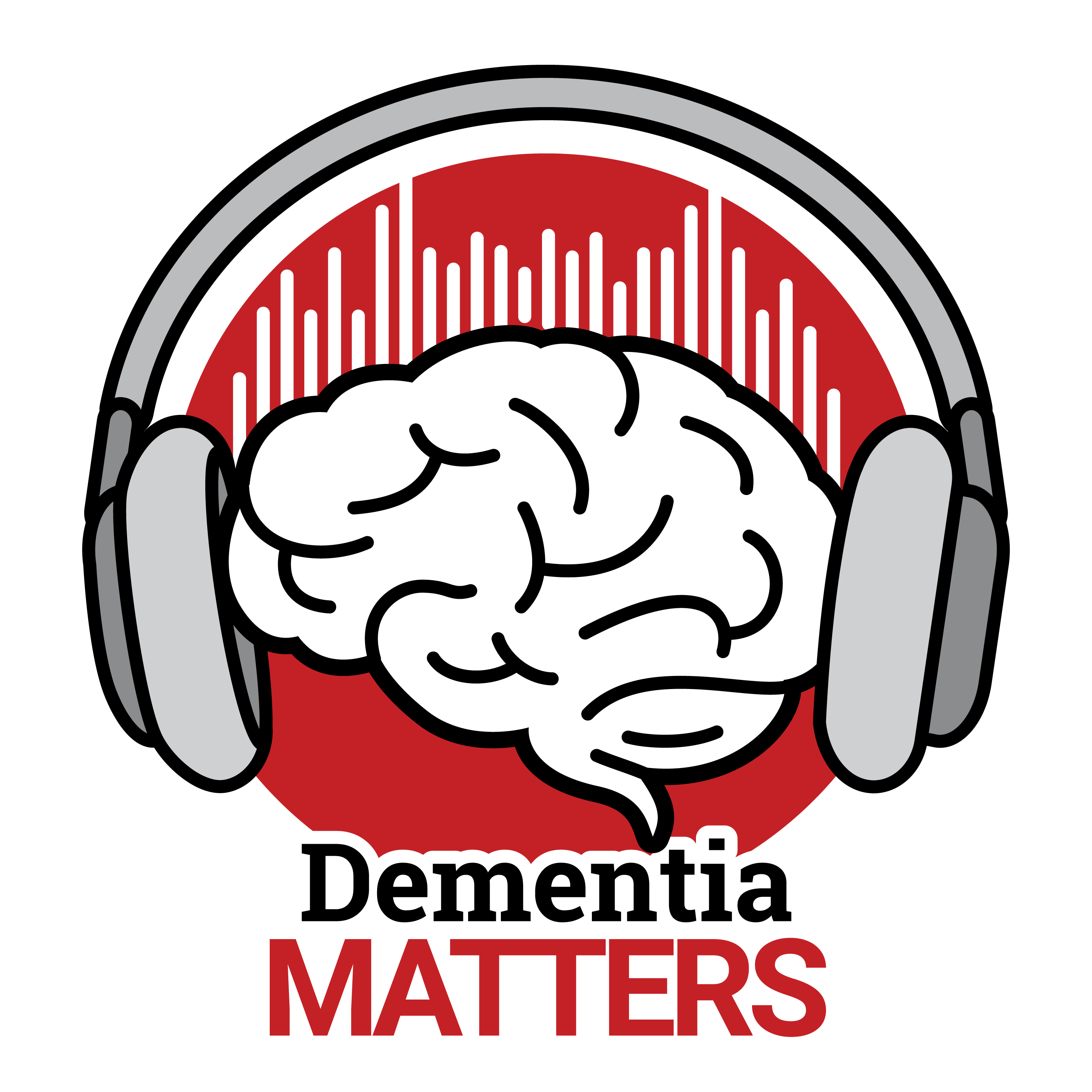 Dementia MattersThe Case for Disclosing Biomarker Results to Alzheimer’s Research ParticipantsThough several validated biomarkers are studied and used in Alzheimer’s disease research, most research participants don’t have the opportunity to learn their biomarker results afterward, even if they have cognitive impairment. Drs. Jason Karlawish and Josh Grill join the podcast to discuss the debate over sharing biomarker results with research participants, how these powerful disclosures can be made ethically, and why it's as important for the field to study biomarker disclosures as it is to study the biomarkers themselves.
Guests: Josh Grill, PhD, director, Institute for Memory Impairments and Neurological Disorders, associate professor, University of Cali...2022-11-1539 min
Dementia MattersThe Case for Disclosing Biomarker Results to Alzheimer’s Research ParticipantsThough several validated biomarkers are studied and used in Alzheimer’s disease research, most research participants don’t have the opportunity to learn their biomarker results afterward, even if they have cognitive impairment. Drs. Jason Karlawish and Josh Grill join the podcast to discuss the debate over sharing biomarker results with research participants, how these powerful disclosures can be made ethically, and why it's as important for the field to study biomarker disclosures as it is to study the biomarkers themselves.
Guests: Josh Grill, PhD, director, Institute for Memory Impairments and Neurological Disorders, associate professor, University of Cali...2022-11-1539 min Neurology® PodcastJune 2022 Neurology Recall: Aducanumab's Approval, One Year LaterThe June 2022 replay of past episodes showcases a selection of interviews about the impact of the FDA's approval of aducanumab for the treatment of Alzheimer disease (AD). This episode features illuminating conversations with Drs. Gregg Day, Ron Petersen, and Jason Karlawish on the clinical science guiding amyloid-based treatments for AD, the importance of patient participation when considering the use of aducanumab, and the business of Alzheimer disease, respectively. This month's Recall concludes with an interview featuring Pulitzer Prize-winning journalist Pam Belluck on Medicare's limitations on aducanumab coverage.2022-06-011h 05
Neurology® PodcastJune 2022 Neurology Recall: Aducanumab's Approval, One Year LaterThe June 2022 replay of past episodes showcases a selection of interviews about the impact of the FDA's approval of aducanumab for the treatment of Alzheimer disease (AD). This episode features illuminating conversations with Drs. Gregg Day, Ron Petersen, and Jason Karlawish on the clinical science guiding amyloid-based treatments for AD, the importance of patient participation when considering the use of aducanumab, and the business of Alzheimer disease, respectively. This month's Recall concludes with an interview featuring Pulitzer Prize-winning journalist Pam Belluck on Medicare's limitations on aducanumab coverage.2022-06-011h 05 Science RehashedAlzheimer’s Disease from the Inside OutAlzheimer’s disease affects millions of people and their families. Scientists have made extraordinary progress characterizing the pathology of Alzheimer’s and working to find effective treatments. As scientists continue to unlock more and more about the disease and how to combat it, how can we address the challenges currently facing doctors, patients, and caregivers? In this 360 Perspective episode, we talk about the history of Alzheimer’s, the stigma surrounding it, disparities in healthcare, and the impacts on caregivers. We interviewed Drs. Carl Hill, Stephanie Kalb, Jason Karlawish, Gad Marshall, and Stephen Salloway to discuss these issues.
Music...2022-03-3051 min
Science RehashedAlzheimer’s Disease from the Inside OutAlzheimer’s disease affects millions of people and their families. Scientists have made extraordinary progress characterizing the pathology of Alzheimer’s and working to find effective treatments. As scientists continue to unlock more and more about the disease and how to combat it, how can we address the challenges currently facing doctors, patients, and caregivers? In this 360 Perspective episode, we talk about the history of Alzheimer’s, the stigma surrounding it, disparities in healthcare, and the impacts on caregivers. We interviewed Drs. Carl Hill, Stephanie Kalb, Jason Karlawish, Gad Marshall, and Stephen Salloway to discuss these issues.
Music...2022-03-3051 min Elevate EldercareReframing Dementia and Caregiving for the FutureAmid the gradual aging of the American population, there’s never been more awareness about Alzheimer’s and other dementias – but the stigmas and misconceptions have also persisted alongside this public knowledge, even among well-meaning people. At the University of Pennsylvania’s Penn Memory Center, Dr. Jason Karlawish and his colleagues take a holistic approach to caring for people living with Alzheimer’s and other forms of dementia; as a medical ethicist and author, he also probes the ways that society devalues caregiving as a vital role, while also treating elders with cognitive decline as “others.” Karlawish j...2022-02-021h 03
Elevate EldercareReframing Dementia and Caregiving for the FutureAmid the gradual aging of the American population, there’s never been more awareness about Alzheimer’s and other dementias – but the stigmas and misconceptions have also persisted alongside this public knowledge, even among well-meaning people. At the University of Pennsylvania’s Penn Memory Center, Dr. Jason Karlawish and his colleagues take a holistic approach to caring for people living with Alzheimer’s and other forms of dementia; as a medical ethicist and author, he also probes the ways that society devalues caregiving as a vital role, while also treating elders with cognitive decline as “others.” Karlawish j...2022-02-021h 03 Dementia MattersBreaking Down Medicare’s Proposed Decision on Aducanumab and Monoclonal Antibody TreatmentsOn January 11, the Centers for Medicare and Medicaid Services (CMS) announced its much-anticipated coverage proposal for monoclonal antibody treatments that target amyloid for the treatment of Alzheimer’s disease. According to the proposed policy, this class of drugs, which includes aducanumab, also known by the brand name Aduhelm, would be covered for people with Medicare only if they are enrolled in qualifying clinical trials. Dr. Jason Karlawish joins the podcast to discuss the recent proposal, share his reaction to the decision, and tell us how this coverage policy could impact the development of other Alzheimer’s disease treatments in the...2022-01-2929 min
Dementia MattersBreaking Down Medicare’s Proposed Decision on Aducanumab and Monoclonal Antibody TreatmentsOn January 11, the Centers for Medicare and Medicaid Services (CMS) announced its much-anticipated coverage proposal for monoclonal antibody treatments that target amyloid for the treatment of Alzheimer’s disease. According to the proposed policy, this class of drugs, which includes aducanumab, also known by the brand name Aduhelm, would be covered for people with Medicare only if they are enrolled in qualifying clinical trials. Dr. Jason Karlawish joins the podcast to discuss the recent proposal, share his reaction to the decision, and tell us how this coverage policy could impact the development of other Alzheimer’s disease treatments in the...2022-01-2929 min First, Do No HarmNeuroethics and the FDA Approval of AducanumabIn this episode, Karishma interviews Dr. Jason Karlawish, Professor of Medicine, Medical Ethics and Health Policy, and Neurology at the University of Pennsylvania Perelman School of Medicine. We discuss the bioethics of aging and Alzheimer’s as well as the recent controversial FDA approval of aducanumab to help treat Alzheimer’s disease. We explore issues from the implications of aducanumab’s approval on care and treatment of patients with Alzheimer’s, how it will impact prescribing habits, and the shared decision-making process between providers and the patient and their caregivers.2022-01-2539 min
First, Do No HarmNeuroethics and the FDA Approval of AducanumabIn this episode, Karishma interviews Dr. Jason Karlawish, Professor of Medicine, Medical Ethics and Health Policy, and Neurology at the University of Pennsylvania Perelman School of Medicine. We discuss the bioethics of aging and Alzheimer’s as well as the recent controversial FDA approval of aducanumab to help treat Alzheimer’s disease. We explore issues from the implications of aducanumab’s approval on care and treatment of patients with Alzheimer’s, how it will impact prescribing habits, and the shared decision-making process between providers and the patient and their caregivers.2022-01-2539 min Caregiver SOSThe Problem of Alzheimer’s: How Science, Culture, and Politics Turned a Rare Disease into a Crisis with Dr. Karlawish (10-2-21 Reupload)Dr. Jason Karlawish, author and Professor of Medicine, Medical Ethics and Health Policy, and Neurology at the University of Pennsylvania and Co-Director of the Penn Memory Center, talks with Caregiver SOS on Air cohosts Carol Zernial, nationally known expert on gerontology, and veteran broadcaster and attorney Ron Aaron about Dr. Karlawish's book - "The Problem of Alzheimer’s: How Science, Culture, and Politics Turned a Rare Disease into a Crisis." For more visit www.jasonkarlawish.com.See omnystudio.com/listener for privacy information.2022-01-1426 min
Caregiver SOSThe Problem of Alzheimer’s: How Science, Culture, and Politics Turned a Rare Disease into a Crisis with Dr. Karlawish (10-2-21 Reupload)Dr. Jason Karlawish, author and Professor of Medicine, Medical Ethics and Health Policy, and Neurology at the University of Pennsylvania and Co-Director of the Penn Memory Center, talks with Caregiver SOS on Air cohosts Carol Zernial, nationally known expert on gerontology, and veteran broadcaster and attorney Ron Aaron about Dr. Karlawish's book - "The Problem of Alzheimer’s: How Science, Culture, and Politics Turned a Rare Disease into a Crisis." For more visit www.jasonkarlawish.com.See omnystudio.com/listener for privacy information.2022-01-1426 min Minding MemoryCould the FDA’s Approval of a New Drug to Treat Alzheimer’s Disease do More Harm than Good?Aducanumab is a new drug designed to remove amyloid in the brain. Following an accelerated process, the Food and Drug Administration approved Aducanumab as a treatment for Alzheimer’s disease despite (what many experts feel) little evidence of effectiveness. In this episode we discuss the approval of Aducanumab with Dr. Jason Karlawish from the University of Pennsylvania and talk about what it could mean for drug discovery going forward. The transcript for this episode can be found here. Related Links: CAPRA Website: http://capra.med.umich.edu/ The Problem of A...2021-11-0841 min
Minding MemoryCould the FDA’s Approval of a New Drug to Treat Alzheimer’s Disease do More Harm than Good?Aducanumab is a new drug designed to remove amyloid in the brain. Following an accelerated process, the Food and Drug Administration approved Aducanumab as a treatment for Alzheimer’s disease despite (what many experts feel) little evidence of effectiveness. In this episode we discuss the approval of Aducanumab with Dr. Jason Karlawish from the University of Pennsylvania and talk about what it could mean for drug discovery going forward. The transcript for this episode can be found here. Related Links: CAPRA Website: http://capra.med.umich.edu/ The Problem of A...2021-11-0841 min The NocturnistsFacing the Alzheimer's Crisis with Jason Karlawish, MDAlzheimer's disease used to be a rare diagnosis. But today, more than 5.8 million Americans are living with Alzheimer's and this number is projected to triple to 14 million over the next forty years. In this episode, Emily discusses the mounting practical, moral, and ethical quandaries of caring for patients with Alzheimer’s and other dementia-causing diseases with Dr. Jason Karlawish, author of The Problem of Alzheimer’s: How Science, Culture and Politics Turned a Rare Disease into a Crisis and What We Can Do About It. The Nocturnists are partnering with VCU Health Continuing Education to offe...2021-11-0245 min
The NocturnistsFacing the Alzheimer's Crisis with Jason Karlawish, MDAlzheimer's disease used to be a rare diagnosis. But today, more than 5.8 million Americans are living with Alzheimer's and this number is projected to triple to 14 million over the next forty years. In this episode, Emily discusses the mounting practical, moral, and ethical quandaries of caring for patients with Alzheimer’s and other dementia-causing diseases with Dr. Jason Karlawish, author of The Problem of Alzheimer’s: How Science, Culture and Politics Turned a Rare Disease into a Crisis and What We Can Do About It. The Nocturnists are partnering with VCU Health Continuing Education to offe...2021-11-0245 min Neurology® PodcastAducanumab and the Business of Alzheimer Disease; Implicit Light Sensitivity in MigraineIn the first part of the podcast, Dr. Jason Crowell discusses the business of Alzheimer disease and how to approach teaching patients about aducanumab with Dr. Jason Karlawish. In the second segment, Dr. Jennifer Bickel talks with Dr. Eric Kaiser about the contribution of melanopsin and cone signals to light-induced reflexive eye closure in migraine.2021-10-2520 min
Neurology® PodcastAducanumab and the Business of Alzheimer Disease; Implicit Light Sensitivity in MigraineIn the first part of the podcast, Dr. Jason Crowell discusses the business of Alzheimer disease and how to approach teaching patients about aducanumab with Dr. Jason Karlawish. In the second segment, Dr. Jennifer Bickel talks with Dr. Eric Kaiser about the contribution of melanopsin and cone signals to light-induced reflexive eye closure in migraine.2021-10-2520 min GeriPal - A Geriatrics and Palliative Medicine Podcast“Real world” eligibility for aducanumab: A Podcast with Tim Anderson and Marco CanevelliThe FDA label for the amyloid antibody aducanumab (Aduhelm) started off exceedingly broad, basically including anyone with Alzheimer's disease, but was subsequently narrowed to to patients with mild cognitive impairment (MCI) or mild dementia due to Alzheimer disease (AD). Should, though, the label be even more restrictive to mirror the populations studied in the two still unpublished trials of the drug, EMERGE and ENGAGE? Or should CMS consider restricting coverage for aducanumab to populations meeting trial eligibility criteria and requiring additional evidence on clinical outcomes in groups excluded from the trials? In today's podcast, we talk with Ti...2021-10-2146 min
GeriPal - A Geriatrics and Palliative Medicine Podcast“Real world” eligibility for aducanumab: A Podcast with Tim Anderson and Marco CanevelliThe FDA label for the amyloid antibody aducanumab (Aduhelm) started off exceedingly broad, basically including anyone with Alzheimer's disease, but was subsequently narrowed to to patients with mild cognitive impairment (MCI) or mild dementia due to Alzheimer disease (AD). Should, though, the label be even more restrictive to mirror the populations studied in the two still unpublished trials of the drug, EMERGE and ENGAGE? Or should CMS consider restricting coverage for aducanumab to populations meeting trial eligibility criteria and requiring additional evidence on clinical outcomes in groups excluded from the trials? In today's podcast, we talk with Ti...2021-10-2146 min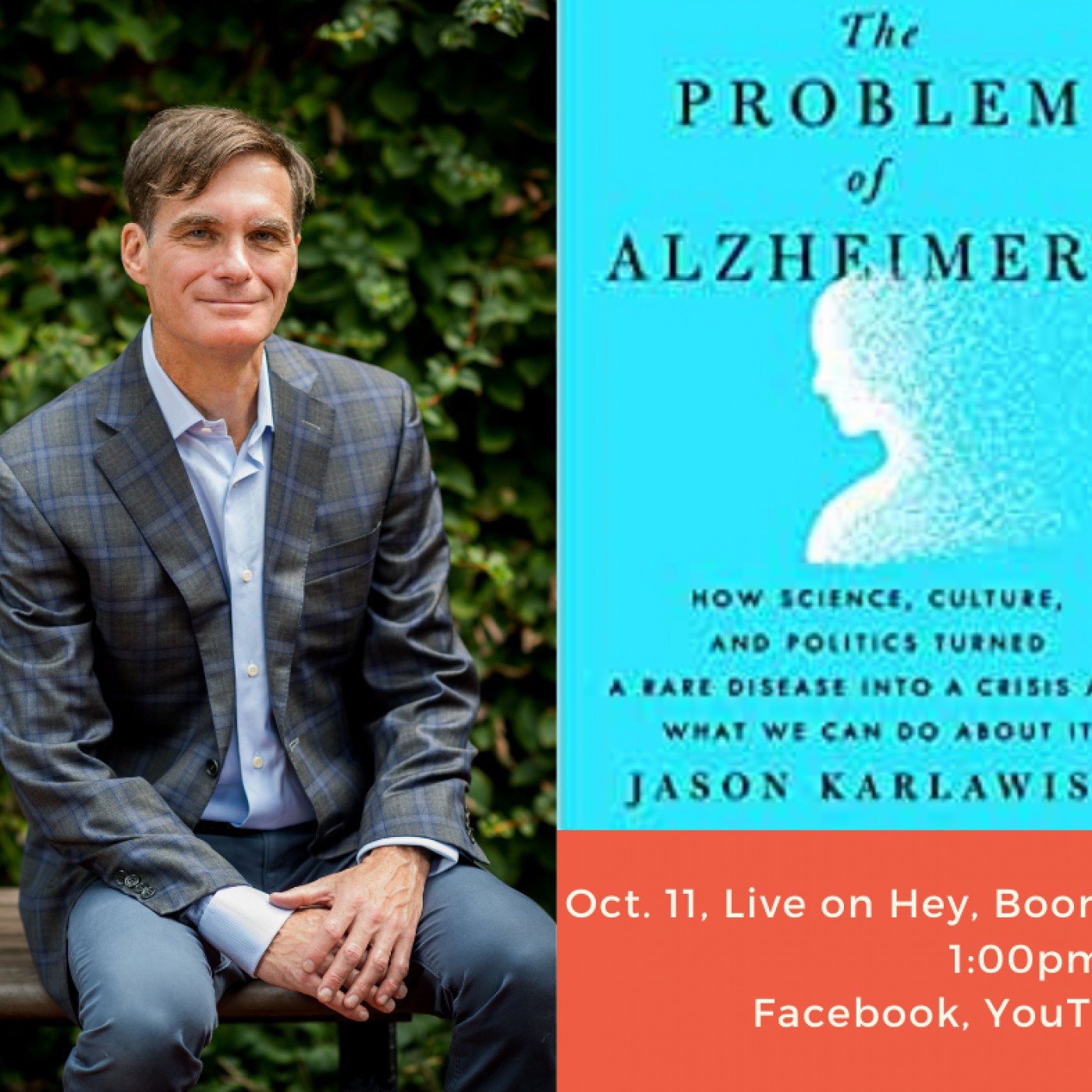 Boomer Banter, Real Talk about Aging WellThe Problem of Alzheimer'sDr. Jason Karlawish, physician and professor at the University of Pennsylvania and co-director of the Penn Memory Center, speaks with us about his book, "The Problem of Alzheimer's: How Science, Culture and Politics Turned a Rare Disease into a Crisis."
The discussion was insightful in many ways. We talked about how Alzheimer's was first identifed as a disease, rather than just an outcome of aging. The challenges facing caregivers and the cost of long-term care, on individuals, families and society. We looked at how politics has used rhetoric to design a health care system that is not...2021-10-1251 min
Boomer Banter, Real Talk about Aging WellThe Problem of Alzheimer'sDr. Jason Karlawish, physician and professor at the University of Pennsylvania and co-director of the Penn Memory Center, speaks with us about his book, "The Problem of Alzheimer's: How Science, Culture and Politics Turned a Rare Disease into a Crisis."
The discussion was insightful in many ways. We talked about how Alzheimer's was first identifed as a disease, rather than just an outcome of aging. The challenges facing caregivers and the cost of long-term care, on individuals, families and society. We looked at how politics has used rhetoric to design a health care system that is not...2021-10-1251 min Caregiver SOS On AirHow Science, Culture, and Politics Turned a Rare Disease into a Crisis w/ Dr. KarlawishDr. Jason Karlawish, author and Professor of Medicine, Medical Ethics and Health Policy, and Neurology at the University of Pennsylvania and Co-Director of the Penn Memory Center, talks with Caregiver SOS on Air cohosts Carol Zernial, nationally known expert on gerontology, and veteran broadcaster and attorney Ron Aaron about Dr. Karlawish's book - "The Problem of Alzheimer’s: How Science, Culture, and Politics Turned a Rare Disease into a Crisis." For more visit www.jasonkarlawish.com.2021-10-0626 min
Caregiver SOS On AirHow Science, Culture, and Politics Turned a Rare Disease into a Crisis w/ Dr. KarlawishDr. Jason Karlawish, author and Professor of Medicine, Medical Ethics and Health Policy, and Neurology at the University of Pennsylvania and Co-Director of the Penn Memory Center, talks with Caregiver SOS on Air cohosts Carol Zernial, nationally known expert on gerontology, and veteran broadcaster and attorney Ron Aaron about Dr. Karlawish's book - "The Problem of Alzheimer’s: How Science, Culture, and Politics Turned a Rare Disease into a Crisis." For more visit www.jasonkarlawish.com.2021-10-0626 min Caregiver SOSThe Problem of Alzheimer’s: How Science, Culture, and Politics Turned a Rare Disease into a Crisis with Dr. KarlawishDr. Jason Karlawish, author and Professor of Medicine, Medical Ethics and Health Policy, and Neurology at the University of Pennsylvania and Co-Director of the Penn Memory Center, talks with Caregiver SOS on Air cohosts Carol Zernial, nationally known expert on gerontology, and veteran broadcaster and attorney Ron Aaron about Dr. Karlawish's book - "The Problem of Alzheimer’s: How Science, Culture, and Politics Turned a Rare Disease into a Crisis." For more visit www.jasonkarlawish.com.See omnystudio.com/listener for privacy information.2021-10-0226 min
Caregiver SOSThe Problem of Alzheimer’s: How Science, Culture, and Politics Turned a Rare Disease into a Crisis with Dr. KarlawishDr. Jason Karlawish, author and Professor of Medicine, Medical Ethics and Health Policy, and Neurology at the University of Pennsylvania and Co-Director of the Penn Memory Center, talks with Caregiver SOS on Air cohosts Carol Zernial, nationally known expert on gerontology, and veteran broadcaster and attorney Ron Aaron about Dr. Karlawish's book - "The Problem of Alzheimer’s: How Science, Culture, and Politics Turned a Rare Disease into a Crisis." For more visit www.jasonkarlawish.com.See omnystudio.com/listener for privacy information.2021-10-0226 min Catalyst // Recover...Rebuild...Reform...EP74 Catalyst: Dr Jason Karlawish on dementia and AlzheimersIn this session Danielle Kelly, our Director of Culture & Inclusion at Herbert Smith Freehills joins leading expert on Dementia Dr Jason Karlawish for an important and enlightening conversation on dementia and Alzheimers.During this session Dr Karlawish breaks the disease down for us by exploring the types of Dementia, the role of a caregiver, the early signs of Dementia, the typical stages of Dementia and the medical tests used for dementia diagnosis. For local resources in Australia, Dementia Australia represents the over 450,000 Australians living with dementia and the almost 1.6 million Australians involved in their care. V...2021-09-1439 min
Catalyst // Recover...Rebuild...Reform...EP74 Catalyst: Dr Jason Karlawish on dementia and AlzheimersIn this session Danielle Kelly, our Director of Culture & Inclusion at Herbert Smith Freehills joins leading expert on Dementia Dr Jason Karlawish for an important and enlightening conversation on dementia and Alzheimers.During this session Dr Karlawish breaks the disease down for us by exploring the types of Dementia, the role of a caregiver, the early signs of Dementia, the typical stages of Dementia and the medical tests used for dementia diagnosis. For local resources in Australia, Dementia Australia represents the over 450,000 Australians living with dementia and the almost 1.6 million Australians involved in their care. V...2021-09-1439 min Journal EntriesAlive Inside with Andrew PetersonAs we learn more and more about the brain, researchers are developing new neuroscientific methods that can help diagnose patients with traumatic brain injury. For example, some of these methods might even be able to tell us that patients who otherwise appear unresponsive are actually still "alive inside". That's an amazing idea, but the story doesn't stop there. As such technology develops, it raises a number of ethical questions about how it works and how to use. In this paper, Andrew and his coauthors investigate the benefits, harms, and costs of using neuroimaging to detect human consciousness.
...2021-09-0629 min
Journal EntriesAlive Inside with Andrew PetersonAs we learn more and more about the brain, researchers are developing new neuroscientific methods that can help diagnose patients with traumatic brain injury. For example, some of these methods might even be able to tell us that patients who otherwise appear unresponsive are actually still "alive inside". That's an amazing idea, but the story doesn't stop there. As such technology develops, it raises a number of ethical questions about how it works and how to use. In this paper, Andrew and his coauthors investigate the benefits, harms, and costs of using neuroimaging to detect human consciousness.
...2021-09-0629 min Mental Health + Aging with Dr. Regina Koepp#072- Risks and Benefits of Aducanumab for Alzheimer's DiseaseAducanumab has been a hot topic in the field of dementia and Alzheimer's disease. Aducanumab, also known as Aduhelm, is a new Alzheimer's drug for people with Alzheimer's disease in their early stages with mild cognitive impairment. With so many questions, it helps to have answers from experts like Dr. Jason Karlawish, Neurologist and Co-Director of the Penn Memory Center.In this episode, Dr. Karlawish and I discucss:Reasons that Dr. Karlawish is a "reluctant prescriber" of AducanumabThe risks and benefits of Aducanumab for Alzheimer's DiseaseHow the FDA made the decision to approve Aducanumab for useThe...2021-08-1735 min
Mental Health + Aging with Dr. Regina Koepp#072- Risks and Benefits of Aducanumab for Alzheimer's DiseaseAducanumab has been a hot topic in the field of dementia and Alzheimer's disease. Aducanumab, also known as Aduhelm, is a new Alzheimer's drug for people with Alzheimer's disease in their early stages with mild cognitive impairment. With so many questions, it helps to have answers from experts like Dr. Jason Karlawish, Neurologist and Co-Director of the Penn Memory Center.In this episode, Dr. Karlawish and I discucss:Reasons that Dr. Karlawish is a "reluctant prescriber" of AducanumabThe risks and benefits of Aducanumab for Alzheimer's DiseaseHow the FDA made the decision to approve Aducanumab for useThe...2021-08-1735 min At Home, On AirAlzheimer’s is a Humanitarian Crisis | A Conversation with Anne Basting and Dr. Jason KarlawishAlzheimer’s is a Humanitarian Crisis. It Needs a Human Response.
At Home With Growing Older is proud to be your host of At Home, On Air a bi-weekly radio hour offering connection, community and knowledge to our participants remotely. We invite you to listen and learn from this live recorded episode of, At Home, On Air with Anne Basting and Dr. Jason Karlawish.
Learn more, donate today, and register for the next LIVE episode of At Home, On Air: www.athomewithgrowingolder.org2021-08-1243 min
At Home, On AirAlzheimer’s is a Humanitarian Crisis | A Conversation with Anne Basting and Dr. Jason KarlawishAlzheimer’s is a Humanitarian Crisis. It Needs a Human Response.
At Home With Growing Older is proud to be your host of At Home, On Air a bi-weekly radio hour offering connection, community and knowledge to our participants remotely. We invite you to listen and learn from this live recorded episode of, At Home, On Air with Anne Basting and Dr. Jason Karlawish.
Learn more, donate today, and register for the next LIVE episode of At Home, On Air: www.athomewithgrowingolder.org2021-08-1243 min GeriPal - A Geriatrics and Palliative Medicine PodcastAducanumab (Aduhelm) for the Treatment of Alzheimers: A Podcast with Aaron Kesselheim and Jason KarlawishOn June 7th, 2021 FDA approved the amyloid beta-directed antibody aducanumab (Aduhelm) for the Treatment of Alzheimers. This approval of aducanumab was not without controversy. Actually, let me restate that. The approval of aducanumab was a hot mess, inside a dumpster fire, inside a train wreck. After the approval, three members of the FDA advisory panel, which unanimously was not in favor of the approval of aduhelm, quit. One of them, Aaron Kesselheim (who we have on our podcast today) described it as “the worst drug approval decision in recent U.S. history" in his resignation letter. Then the FD...2021-07-2944 min
GeriPal - A Geriatrics and Palliative Medicine PodcastAducanumab (Aduhelm) for the Treatment of Alzheimers: A Podcast with Aaron Kesselheim and Jason KarlawishOn June 7th, 2021 FDA approved the amyloid beta-directed antibody aducanumab (Aduhelm) for the Treatment of Alzheimers. This approval of aducanumab was not without controversy. Actually, let me restate that. The approval of aducanumab was a hot mess, inside a dumpster fire, inside a train wreck. After the approval, three members of the FDA advisory panel, which unanimously was not in favor of the approval of aduhelm, quit. One of them, Aaron Kesselheim (who we have on our podcast today) described it as “the worst drug approval decision in recent U.S. history" in his resignation letter. Then the FD...2021-07-2944 min Deep Breath InLockdown dementia with Jason Karlawish and Jennifer WattThe pandemic had a high mortality toll in care homes, but measures to try and reduce that, through extreme social isolation, has had its own cost.
Social interaction, particularly with close family, is more than just a quick hello - evidence shows that mental stimulation can help with cognitive decline, and the lack of that interaction may have hastened progression of dementia in some patients.
In this podcast, the team talk about what GPs can do to support patients in care homes, and we find out about some non-drug interventions patients can try.
Our guests;
Jason Karlawish, is a geriatrician...2021-07-1649 min
Deep Breath InLockdown dementia with Jason Karlawish and Jennifer WattThe pandemic had a high mortality toll in care homes, but measures to try and reduce that, through extreme social isolation, has had its own cost.
Social interaction, particularly with close family, is more than just a quick hello - evidence shows that mental stimulation can help with cognitive decline, and the lack of that interaction may have hastened progression of dementia in some patients.
In this podcast, the team talk about what GPs can do to support patients in care homes, and we find out about some non-drug interventions patients can try.
Our guests;
Jason Karlawish, is a geriatrician...2021-07-1649 min Deep Breath InLockdown dementia with Jason Karlawish and Jennifer WattThe pandemic had a high mortality toll in care homes, but measures to try and reduce that, through extreme social isolation, has had its own cost.
Social interaction, particularly with close family, is more than just a quick hello - evidence shows that mental stimulation can help with cognitive decline, and the lack of that interaction may have hastened progression of dementia in some patients.
In this podcast, the team talk about what GPs can do to support patients in care homes, and we find out about some non-drug interventions patients can try.
Our guests;
Jason Karlawish, is a geriatrician...2021-07-1549 min
Deep Breath InLockdown dementia with Jason Karlawish and Jennifer WattThe pandemic had a high mortality toll in care homes, but measures to try and reduce that, through extreme social isolation, has had its own cost.
Social interaction, particularly with close family, is more than just a quick hello - evidence shows that mental stimulation can help with cognitive decline, and the lack of that interaction may have hastened progression of dementia in some patients.
In this podcast, the team talk about what GPs can do to support patients in care homes, and we find out about some non-drug interventions patients can try.
Our guests;
Jason Karlawish, is a geriatrician...2021-07-1549 min The Hanh Brown ShowJason Karlawish - Are You Prepared for the Increase in Cases of Dementia?Dementia is a general term for loss of memory, language, problem-solving, and other thinking abilities that are severe enough to interfere with daily life. Alzheimer's is the most common cause of dementia.As life expectancies increase, more and more people are at risk of developing dementia. But what does it even mean?According to alz.org, in the United States, there are more deaths from Alzheimer’s and dementia than from breast cancer and prostate cancer combined. In the past few years, Alzheimer’s deaths have increased by 16%. In 2021, Alzheimer’s will cost the nation $355 billio...2021-07-1036 min
The Hanh Brown ShowJason Karlawish - Are You Prepared for the Increase in Cases of Dementia?Dementia is a general term for loss of memory, language, problem-solving, and other thinking abilities that are severe enough to interfere with daily life. Alzheimer's is the most common cause of dementia.As life expectancies increase, more and more people are at risk of developing dementia. But what does it even mean?According to alz.org, in the United States, there are more deaths from Alzheimer’s and dementia than from breast cancer and prostate cancer combined. In the past few years, Alzheimer’s deaths have increased by 16%. In 2021, Alzheimer’s will cost the nation $355 billio...2021-07-1036 min Whiskey & Cream Podcast with Ari ShapiroWhiskey & Cream: Episode XXWhiskey & Cream for June 19th, 2021Host: Ari Shapiro0:38-8:15: ""Canada and Islamophobia: Hypocrisy lives here" How quickly so many have forgotten that a deranged, hate-filled gunman stormed a Quebec City mosque back in January 2017 and brutally murdered six men while injuring 19 others, splintering a close-knit Muslim-Canadian community already grappling with xenophobic prejudice in their neighbourhoods. By March of that year, a Liberal MP (Iqra Khalid) tabled a crucial parliamentary motion following the attack that directly condemned the "fear of Islam" as a form of religious discrimination and source of...2021-06-2028 min
Whiskey & Cream Podcast with Ari ShapiroWhiskey & Cream: Episode XXWhiskey & Cream for June 19th, 2021Host: Ari Shapiro0:38-8:15: ""Canada and Islamophobia: Hypocrisy lives here" How quickly so many have forgotten that a deranged, hate-filled gunman stormed a Quebec City mosque back in January 2017 and brutally murdered six men while injuring 19 others, splintering a close-knit Muslim-Canadian community already grappling with xenophobic prejudice in their neighbourhoods. By March of that year, a Liberal MP (Iqra Khalid) tabled a crucial parliamentary motion following the attack that directly condemned the "fear of Islam" as a form of religious discrimination and source of...2021-06-2028 min Ari ShapiroWhiskey and Cream: Episode XXWhiskey & Cream for June 19th, 2021
Host: Ari Shapiro
0:38-8:15: “Canada and Islamophobia: Hypocrisy lives here”
How quickly so many have forgotten that a deranged, hate-filled gunman stormed a Quebec City mosque back in January 2017 and brutally murdered six men while injuring 19 others, splintering a close-knit Muslim-Canadian community already grappling with xenophobic prejudice in their neighbourhoods. By March of that year, a Liberal MP (Iqra Khalid) tabled a crucial parliamentary motion following the attack that directly condemned the “fear of Islam” as a form of religious discrimination and source of racism across Canada. Although Motion 1...2021-06-1900 min
Ari ShapiroWhiskey and Cream: Episode XXWhiskey & Cream for June 19th, 2021
Host: Ari Shapiro
0:38-8:15: “Canada and Islamophobia: Hypocrisy lives here”
How quickly so many have forgotten that a deranged, hate-filled gunman stormed a Quebec City mosque back in January 2017 and brutally murdered six men while injuring 19 others, splintering a close-knit Muslim-Canadian community already grappling with xenophobic prejudice in their neighbourhoods. By March of that year, a Liberal MP (Iqra Khalid) tabled a crucial parliamentary motion following the attack that directly condemned the “fear of Islam” as a form of religious discrimination and source of racism across Canada. Although Motion 1...2021-06-1900 min Healthy Skeptic, MDWhat’s on the Horizon for Dementia Care? (And the FDA’s Decision on aducanumab) with Dr. Jason KarlawishIn his new book The Problem of Alzheimer’s, Dr. Jason Karlawish from the Penn Memory Center traces the history of a condition that impacts nearly 6 million Americans at a cost of more than $225 billion annually. These numbers may triple over the next decade. In today’s episode, Dr. Karlawish discusses potential breakthroughs in the years ahead – both pharmacologic and social – that can help us weather this storm. We also review the FDA’s controversial approval last week of aducanumab, the first new drug for Alzheimer’s in nearly two decades.**Be sure to subscribe to The Healthy Skeptic MD o...2021-06-1842 min
Healthy Skeptic, MDWhat’s on the Horizon for Dementia Care? (And the FDA’s Decision on aducanumab) with Dr. Jason KarlawishIn his new book The Problem of Alzheimer’s, Dr. Jason Karlawish from the Penn Memory Center traces the history of a condition that impacts nearly 6 million Americans at a cost of more than $225 billion annually. These numbers may triple over the next decade. In today’s episode, Dr. Karlawish discusses potential breakthroughs in the years ahead – both pharmacologic and social – that can help us weather this storm. We also review the FDA’s controversial approval last week of aducanumab, the first new drug for Alzheimer’s in nearly two decades.**Be sure to subscribe to The Healthy Skeptic MD o...2021-06-1842 min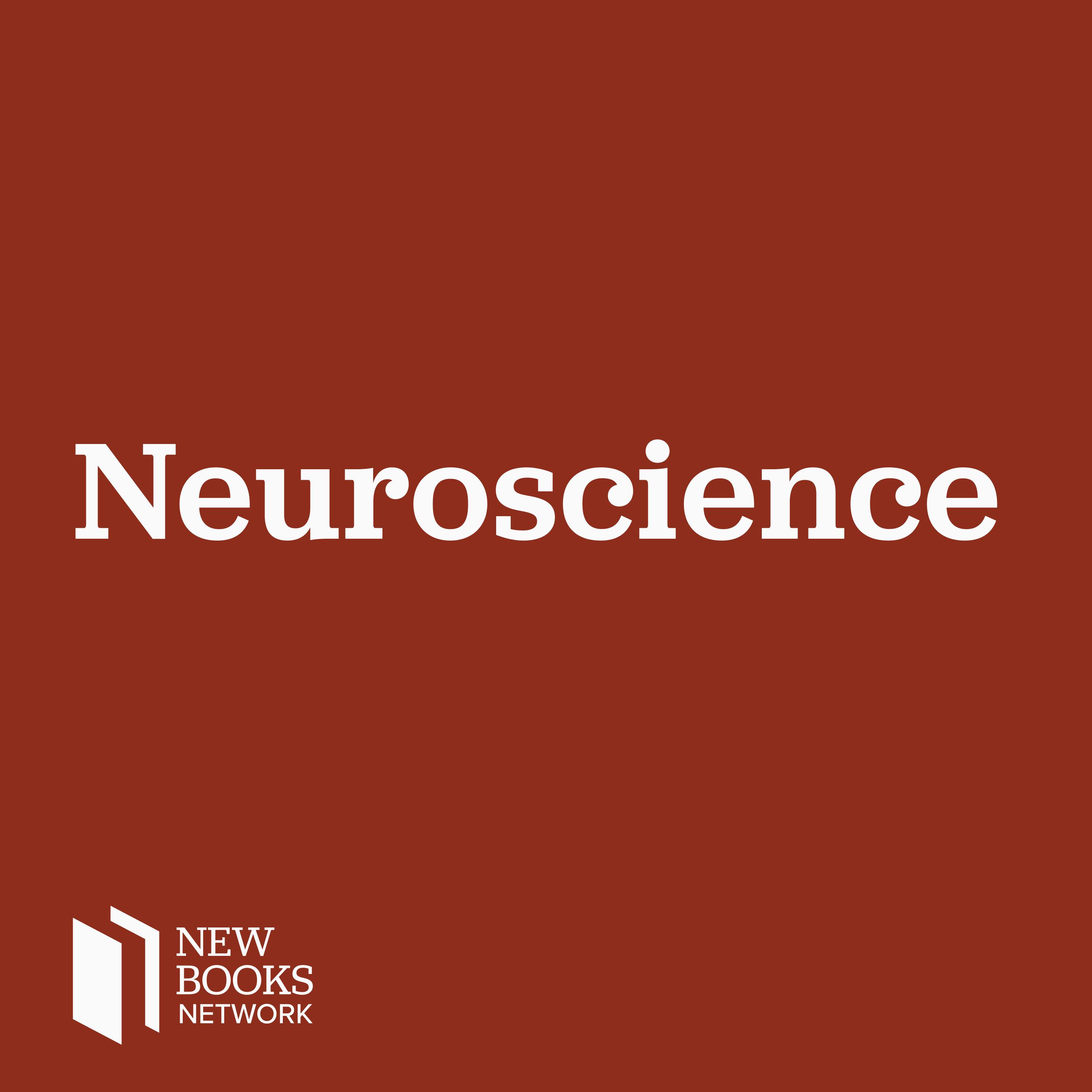 New Books in NeuroscienceJason Karlawish, "The Problem of Alzheimer's: How Science, Culture, and Politics Turned a Rare Disease into a Crisis and What We Can Do About It" (St. Martin's Press, 2021)In 2020, an estimated 5.8 million Americans had Alzheimer’s, and more than half a million died because of the disease and its devastating complications. 16 million caregivers are responsible for paying as much as half of the $226 billion annual costs of their care. As more people live beyond their seventies and eighties, the number of patients will rise to an estimated 13.8 million by 2025.Part case studies, part meditation on the past, present and future of the disease, The Problem of Alzheimer's: How Science, Culture, and Politics Turned a Rare Disease into a Crisis and What We Can Do About It ...2021-05-111h 03
New Books in NeuroscienceJason Karlawish, "The Problem of Alzheimer's: How Science, Culture, and Politics Turned a Rare Disease into a Crisis and What We Can Do About It" (St. Martin's Press, 2021)In 2020, an estimated 5.8 million Americans had Alzheimer’s, and more than half a million died because of the disease and its devastating complications. 16 million caregivers are responsible for paying as much as half of the $226 billion annual costs of their care. As more people live beyond their seventies and eighties, the number of patients will rise to an estimated 13.8 million by 2025.Part case studies, part meditation on the past, present and future of the disease, The Problem of Alzheimer's: How Science, Culture, and Politics Turned a Rare Disease into a Crisis and What We Can Do About It ...2021-05-111h 03 New Books in PsychologyJason Karlawish, "The Problem of Alzheimer's: How Science, Culture, and Politics Turned a Rare Disease into a Crisis and What We Can Do About It" (St. Martin's Press, 2021)In 2020, an estimated 5.8 million Americans had Alzheimer’s, and more than half a million died because of the disease and its devastating complications. 16 million caregivers are responsible for paying as much as half of the $226 billion annual costs of their care. As more people live beyond their seventies and eighties, the number of patients will rise to an estimated 13.8 million by 2025.Part case studies, part meditation on the past, present and future of the disease, The Problem of Alzheimer's: How Science, Culture, and Politics Turned a Rare Disease into a Crisis and What We Can Do About It ...2021-05-111h 04
New Books in PsychologyJason Karlawish, "The Problem of Alzheimer's: How Science, Culture, and Politics Turned a Rare Disease into a Crisis and What We Can Do About It" (St. Martin's Press, 2021)In 2020, an estimated 5.8 million Americans had Alzheimer’s, and more than half a million died because of the disease and its devastating complications. 16 million caregivers are responsible for paying as much as half of the $226 billion annual costs of their care. As more people live beyond their seventies and eighties, the number of patients will rise to an estimated 13.8 million by 2025.Part case studies, part meditation on the past, present and future of the disease, The Problem of Alzheimer's: How Science, Culture, and Politics Turned a Rare Disease into a Crisis and What We Can Do About It ...2021-05-111h 04 New Books in MedicineJason Karlawish, "The Problem of Alzheimer's: How Science, Culture, and Politics Turned a Rare Disease into a Crisis and What We Can Do About It" (St. Martin's Press, 2021)In 2020, an estimated 5.8 million Americans had Alzheimer’s, and more than half a million died because of the disease and its devastating complications. 16 million caregivers are responsible for paying as much as half of the $226 billion annual costs of their care. As more people live beyond their seventies and eighties, the number of patients will rise to an estimated 13.8 million by 2025.Part case studies, part meditation on the past, present and future of the disease, The Problem of Alzheimer's: How Science, Culture, and Politics Turned a Rare Disease into a Crisis and What We Can Do About It ...2021-05-111h 04
New Books in MedicineJason Karlawish, "The Problem of Alzheimer's: How Science, Culture, and Politics Turned a Rare Disease into a Crisis and What We Can Do About It" (St. Martin's Press, 2021)In 2020, an estimated 5.8 million Americans had Alzheimer’s, and more than half a million died because of the disease and its devastating complications. 16 million caregivers are responsible for paying as much as half of the $226 billion annual costs of their care. As more people live beyond their seventies and eighties, the number of patients will rise to an estimated 13.8 million by 2025.Part case studies, part meditation on the past, present and future of the disease, The Problem of Alzheimer's: How Science, Culture, and Politics Turned a Rare Disease into a Crisis and What We Can Do About It ...2021-05-111h 04 New Books in Biology and EvolutionJason Karlawish, "The Problem of Alzheimer's: How Science, Culture, and Politics Turned a Rare Disease into a Crisis and What We Can Do About It" (St. Martin's Press, 2021)In 2020, an estimated 5.8 million Americans had Alzheimer’s, and more than half a million died because of the disease and its devastating complications. 16 million caregivers are responsible for paying as much as half of the $226 billion annual costs of their care. As more people live beyond their seventies and eighties, the number of patients will rise to an estimated 13.8 million by 2025.Part case studies, part meditation on the past, present and future of the disease, The Problem of Alzheimer's: How Science, Culture, and Politics Turned a Rare Disease into a Crisis and What We Can Do About It ...2021-05-111h 03
New Books in Biology and EvolutionJason Karlawish, "The Problem of Alzheimer's: How Science, Culture, and Politics Turned a Rare Disease into a Crisis and What We Can Do About It" (St. Martin's Press, 2021)In 2020, an estimated 5.8 million Americans had Alzheimer’s, and more than half a million died because of the disease and its devastating complications. 16 million caregivers are responsible for paying as much as half of the $226 billion annual costs of their care. As more people live beyond their seventies and eighties, the number of patients will rise to an estimated 13.8 million by 2025.Part case studies, part meditation on the past, present and future of the disease, The Problem of Alzheimer's: How Science, Culture, and Politics Turned a Rare Disease into a Crisis and What We Can Do About It ...2021-05-111h 03 New Books in ScienceJason Karlawish, "The Problem of Alzheimer's: How Science, Culture, and Politics Turned a Rare Disease into a Crisis and What We Can Do About It" (St. Martin's Press, 2021)In 2020, an estimated 5.8 million Americans had Alzheimer’s, and more than half a million died because of the disease and its devastating complications. 16 million caregivers are responsible for paying as much as half of the $226 billion annual costs of their care. As more people live beyond their seventies and eighties, the number of patients will rise to an estimated 13.8 million by 2025.Part case studies, part meditation on the past, present and future of the disease, The Problem of Alzheimer's: How Science, Culture, and Politics Turned a Rare Disease into a Crisis and What We Can Do About It ...2021-05-111h 03
New Books in ScienceJason Karlawish, "The Problem of Alzheimer's: How Science, Culture, and Politics Turned a Rare Disease into a Crisis and What We Can Do About It" (St. Martin's Press, 2021)In 2020, an estimated 5.8 million Americans had Alzheimer’s, and more than half a million died because of the disease and its devastating complications. 16 million caregivers are responsible for paying as much as half of the $226 billion annual costs of their care. As more people live beyond their seventies and eighties, the number of patients will rise to an estimated 13.8 million by 2025.Part case studies, part meditation on the past, present and future of the disease, The Problem of Alzheimer's: How Science, Culture, and Politics Turned a Rare Disease into a Crisis and What We Can Do About It ...2021-05-111h 03 Live Long and Master AgingJason Karlawish: What next for Alzheimer's disease?There has been "spectacular" progress in recent years in the understanding and treatment of Alzheimer's. The progressive disease, which is the most common cause of dementia, a late-in-life decline in memory and cognitive ability, afflicts 50 million people around the world. Taking family members and other carers into account, that number increases exponentially. The condition, for which there is currently no cure, amounts to a modern day crisis, for all involved. In this episode of the LLAMA podcast, Dr Jason Karlawish, a gerontologist and professor of medicine and medical ethics and senior fellow of the Center for Bioethics at the Uni...2021-04-2139 min
Live Long and Master AgingJason Karlawish: What next for Alzheimer's disease?There has been "spectacular" progress in recent years in the understanding and treatment of Alzheimer's. The progressive disease, which is the most common cause of dementia, a late-in-life decline in memory and cognitive ability, afflicts 50 million people around the world. Taking family members and other carers into account, that number increases exponentially. The condition, for which there is currently no cure, amounts to a modern day crisis, for all involved. In this episode of the LLAMA podcast, Dr Jason Karlawish, a gerontologist and professor of medicine and medical ethics and senior fellow of the Center for Bioethics at the Uni...2021-04-2139 min Live Long and Master AgingJason Karlawish: What next for Alzheimer's disease?There has been "spectacular" progress in recent years in the understanding and treatment of Alzheimer's. The progressive disease, which is the most common cause of dementia, a late-in-life decline in memory and cognitive ability, afflicts 50 million people around the world. Taking family members and other carers into account, that number increases exponentially. The condition, for which there is currently no cure, amounts to a modern day crisis, for all involved. In this episode of the LLAMA podcast, Dr Jason Karlawish, a gerontologist and professor of medicine and medical ethics and senior fellow of the Center for Bioethics at the Uni...2021-04-2139 min
Live Long and Master AgingJason Karlawish: What next for Alzheimer's disease?There has been "spectacular" progress in recent years in the understanding and treatment of Alzheimer's. The progressive disease, which is the most common cause of dementia, a late-in-life decline in memory and cognitive ability, afflicts 50 million people around the world. Taking family members and other carers into account, that number increases exponentially. The condition, for which there is currently no cure, amounts to a modern day crisis, for all involved. In this episode of the LLAMA podcast, Dr Jason Karlawish, a gerontologist and professor of medicine and medical ethics and senior fellow of the Center for Bioethics at the Uni...2021-04-2139 min Unlocking Us with Brené BrownBrené with Jason Karlawish, M.D. on The Problem of Alzheimer’sI have a tough, loving conversation about dementia and Alzheimer’s with Jason Karlawish, physician, researcher, professor, clinician, and author of The Problem of Alzheimer’s: How Science, Culture, and Politics Turned a Rare Disease into a Crisis and What We Can Do About It. This heartbreakingly common diagnosis creates multiple patients — both the diagnosed and the caregivers. We talk about the difference between Alzheimer’s and dementia, how we respond to a disease that diminishes our autonomy, and what we can do to take care of ourselves and each other. Learn more about your ad choic...2021-04-211h 05
Unlocking Us with Brené BrownBrené with Jason Karlawish, M.D. on The Problem of Alzheimer’sI have a tough, loving conversation about dementia and Alzheimer’s with Jason Karlawish, physician, researcher, professor, clinician, and author of The Problem of Alzheimer’s: How Science, Culture, and Politics Turned a Rare Disease into a Crisis and What We Can Do About It. This heartbreakingly common diagnosis creates multiple patients — both the diagnosed and the caregivers. We talk about the difference between Alzheimer’s and dementia, how we respond to a disease that diminishes our autonomy, and what we can do to take care of ourselves and each other. Learn more about your ad choic...2021-04-211h 05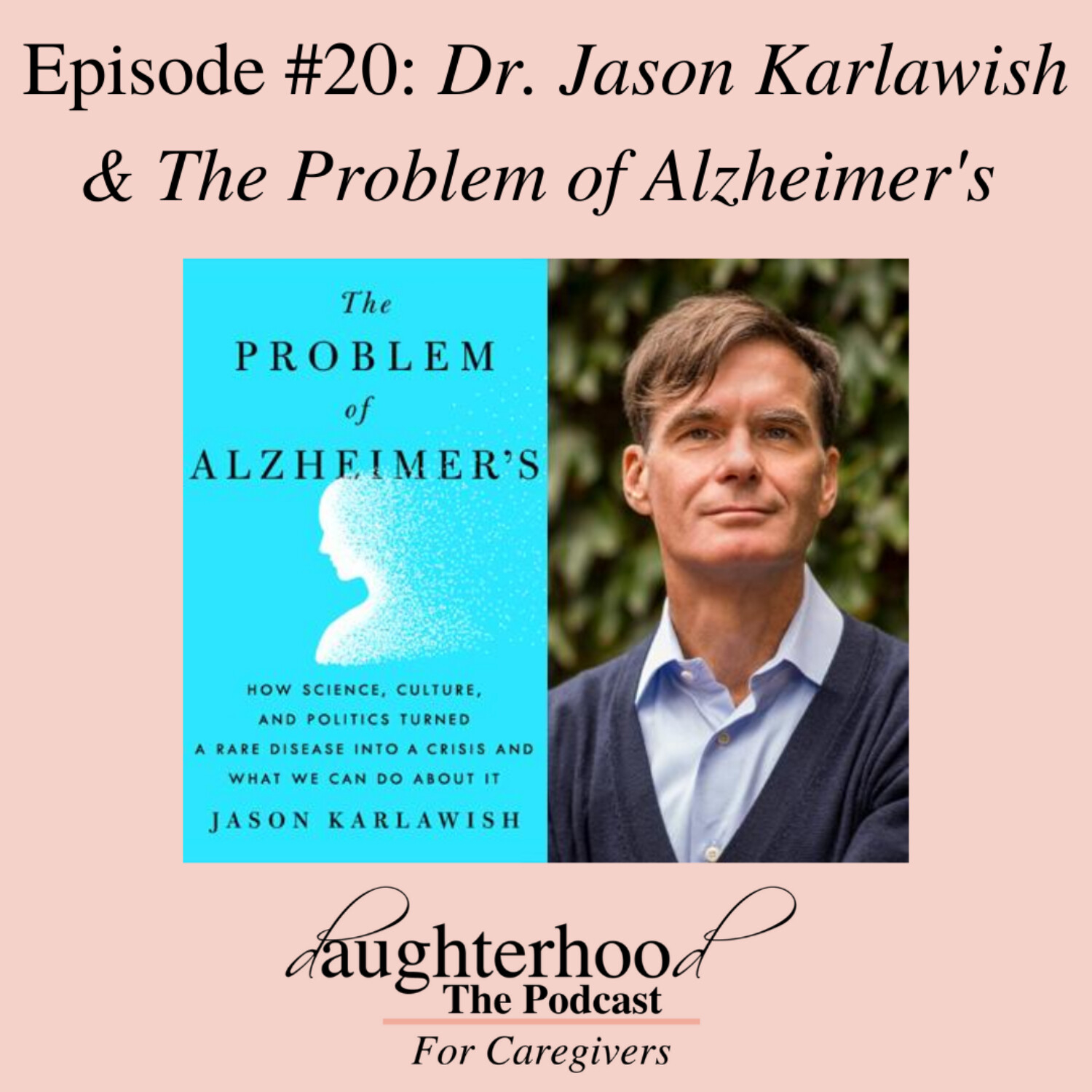 Daughterhood The Podcast: For CaregiversDr Jason Karlawish and The Problem of Alzheimer'sJason Karlawish is a geriatrician, a writer, a professor of medicine, medical ethics and health policy and neurology at the University of Pennsylvania, and is co director of the Penn Memory Center where he cares for patients. I couldn't wait to speak to Dr. Karlawish about his compelling and eye opening new book, The Problem of Alzheimer's How Science, Culture and Politics Turned a Rare Disease Into a Crisis and What We Can Do About It. It answered so many of my questions regarding research, policy and how we got here.
Penn Memory
Click HERE...2021-04-0852 min
Daughterhood The Podcast: For CaregiversDr Jason Karlawish and The Problem of Alzheimer'sJason Karlawish is a geriatrician, a writer, a professor of medicine, medical ethics and health policy and neurology at the University of Pennsylvania, and is co director of the Penn Memory Center where he cares for patients. I couldn't wait to speak to Dr. Karlawish about his compelling and eye opening new book, The Problem of Alzheimer's How Science, Culture and Politics Turned a Rare Disease Into a Crisis and What We Can Do About It. It answered so many of my questions regarding research, policy and how we got here.
Penn Memory
Click HERE...2021-04-0852 min Dementia MattersHow Society Can Improve Care for People with Alzheimer’s Disease and Related DementiasDr. Jason Karlawish discusses society’s role in addressing care for individuals with memory loss, as well as current stigmas around Alzheimer’s disease, Wealthcare, and his cautious optimism for the future of Alzheimer’s disease research and care. This is the final episode in our four-part series with Dr. Karlawish on his new book, "The Problem of Alzheimer's: How Science, Culture, and Politics Turned a Rare Disease Into a Crisis and What We Can Do About It.” Guest: Jason Karlawish, MD, co-director, Penn Memory Center
Episode Topics:
How do you live a good life when you’re slowly losi...2021-04-0130 min
Dementia MattersHow Society Can Improve Care for People with Alzheimer’s Disease and Related DementiasDr. Jason Karlawish discusses society’s role in addressing care for individuals with memory loss, as well as current stigmas around Alzheimer’s disease, Wealthcare, and his cautious optimism for the future of Alzheimer’s disease research and care. This is the final episode in our four-part series with Dr. Karlawish on his new book, "The Problem of Alzheimer's: How Science, Culture, and Politics Turned a Rare Disease Into a Crisis and What We Can Do About It.” Guest: Jason Karlawish, MD, co-director, Penn Memory Center
Episode Topics:
How do you live a good life when you’re slowly losi...2021-04-0130 min Dementia MattersThe Healthcare System’s Role in Alzheimer’s DiseaseDr. Jason Karlawish joins the podcast for the third installment in our series on his new book, "The Problem of Alzheimer's: How Science, Culture, and Politics Turned a Rare Disease Into a Crisis and What We Can Do About It". In this episode, Dr. Karlawish discusses the healthcare system’s role in Alzheimer’s disease and what it needs to do better to care for individuals with dementia and help them live well. Guest: Jason Karlawish, MD, co-director, Penn Memory Center
Episode Topics:
What did you learn about the healthcare system in your work with Beverly and...2021-03-2427 min
Dementia MattersThe Healthcare System’s Role in Alzheimer’s DiseaseDr. Jason Karlawish joins the podcast for the third installment in our series on his new book, "The Problem of Alzheimer's: How Science, Culture, and Politics Turned a Rare Disease Into a Crisis and What We Can Do About It". In this episode, Dr. Karlawish discusses the healthcare system’s role in Alzheimer’s disease and what it needs to do better to care for individuals with dementia and help them live well. Guest: Jason Karlawish, MD, co-director, Penn Memory Center
Episode Topics:
What did you learn about the healthcare system in your work with Beverly and...2021-03-2427 min Dementia MattersHow Culture, Society and Politics Shaped Alzheimer’s Disease ResearchDr. Jason Karlawish returns to the podcast to continue our discussion on his new book, The Problem of Alzheimer's: How Science, Culture, and Politics Turned a Rare Disease Into a Crisis and What We Can Do About It. In this episode, Dr. Karlawish discusses pivotal cultural and political moments that influenced Alzheimer’s disease research, as well as the possibilities of drug treatments in the future. Guest: Jason Karlawish, MD, co-director, Penn Memory Center
Episode Topics:
Who is the unwitting revolutionary? 1:11
What happened to the early German scientists researching Alzheimer’s disease? 6:03
What essay was released in 1...2021-03-1729 min
Dementia MattersHow Culture, Society and Politics Shaped Alzheimer’s Disease ResearchDr. Jason Karlawish returns to the podcast to continue our discussion on his new book, The Problem of Alzheimer's: How Science, Culture, and Politics Turned a Rare Disease Into a Crisis and What We Can Do About It. In this episode, Dr. Karlawish discusses pivotal cultural and political moments that influenced Alzheimer’s disease research, as well as the possibilities of drug treatments in the future. Guest: Jason Karlawish, MD, co-director, Penn Memory Center
Episode Topics:
Who is the unwitting revolutionary? 1:11
What happened to the early German scientists researching Alzheimer’s disease? 6:03
What essay was released in 1...2021-03-1729 min Dementia MattersThe Past, Present and Future of Alzheimer’s Disease ResearchPhysician and author Dr. Jason Karlawish joins the podcast for the first installment of a four-part series centered around his new book, The Problem of Alzheimer's: How Science, Culture, and Politics Turned a Rare Disease Into a Crisis and What We Can Do About It. In the book, Karlawish blends history and science to detail the most important breakthroughs in diagnosing and treating Alzheimer’s disease. He also offers an argument for how we can live with dementia and proposes reforms we can make as a society that would give caregivers and patients better quality of life. In this ep...2021-03-1229 min
Dementia MattersThe Past, Present and Future of Alzheimer’s Disease ResearchPhysician and author Dr. Jason Karlawish joins the podcast for the first installment of a four-part series centered around his new book, The Problem of Alzheimer's: How Science, Culture, and Politics Turned a Rare Disease Into a Crisis and What We Can Do About It. In the book, Karlawish blends history and science to detail the most important breakthroughs in diagnosing and treating Alzheimer’s disease. He also offers an argument for how we can live with dementia and proposes reforms we can make as a society that would give caregivers and patients better quality of life. In this ep...2021-03-1229 min Mental Health + Aging with Dr. Regina Koepp#049- Mild Cognitive Impairment Vs. Dementia Vs. Alzheimer'sIn today's interview, Dr. Jason Karlawish, Neurologist and Co-Director of the Penn Memory Center is on the podcast answering some of your burning dementia questions, like: What is mild cognitive impairment? Describe the difference between Mild Cognitive Impairment Vs. Dementia Vs. Alzheimers.What are the best tips for staving off dementia when you have mild cognitive impairment?What are the pros and cons of an early diagnosis of a dementia disorder, like Alzheimer's Disease? Dr. Karlawish and I go deep in our discussion of how we as a society value human life, and talk about:Why dem...2021-03-0352 min
Mental Health + Aging with Dr. Regina Koepp#049- Mild Cognitive Impairment Vs. Dementia Vs. Alzheimer'sIn today's interview, Dr. Jason Karlawish, Neurologist and Co-Director of the Penn Memory Center is on the podcast answering some of your burning dementia questions, like: What is mild cognitive impairment? Describe the difference between Mild Cognitive Impairment Vs. Dementia Vs. Alzheimers.What are the best tips for staving off dementia when you have mild cognitive impairment?What are the pros and cons of an early diagnosis of a dementia disorder, like Alzheimer's Disease? Dr. Karlawish and I go deep in our discussion of how we as a society value human life, and talk about:Why dem...2021-03-0352 min Begin Your Ears To A Edge-Of-Your-Seat Full Audiobook.The Problem of Alzheimer's by Jason KarlawishPlease visithttps://thebookvoice.com/podcasts/2/audible/124232to listen full audiobooks.
Title: The Problem of Alzheimer's
Author: Jason Karlawish
Narrator: Jason Karlawish, Jonathan Todd Ross
Format: mp3
Length: 13 hrs and 41 mins
Release date: 02-23-21
Ratings: 5 out of 5 stars, 37 ratings
Genres: History & Commentary
Publisher's Summary:
In 2020, an estimated 5.8 million Americans had Alzheimer’s, and more than half a million died because of the disease and its devastating complications. Sixteen million caregivers are responsible for paying as much as half of the $226 billion annual costs of their care. As more people live beyond their 70s and 80s, the number of patients will ri...2021-02-231h 41
Begin Your Ears To A Edge-Of-Your-Seat Full Audiobook.The Problem of Alzheimer's by Jason KarlawishPlease visithttps://thebookvoice.com/podcasts/2/audible/124232to listen full audiobooks.
Title: The Problem of Alzheimer's
Author: Jason Karlawish
Narrator: Jason Karlawish, Jonathan Todd Ross
Format: mp3
Length: 13 hrs and 41 mins
Release date: 02-23-21
Ratings: 5 out of 5 stars, 37 ratings
Genres: History & Commentary
Publisher's Summary:
In 2020, an estimated 5.8 million Americans had Alzheimer’s, and more than half a million died because of the disease and its devastating complications. Sixteen million caregivers are responsible for paying as much as half of the $226 billion annual costs of their care. As more people live beyond their 70s and 80s, the number of patients will ri...2021-02-231h 41 GeriPal - A Geriatrics and Palliative Medicine PodcastThe Problem of Alzheimer's: A Podcast with Jason KarlawishWhere are we with Alzheimers? Are we about to see a revolution in how we diagnose and treat it with Amyloid PET scans and the amyloid antibody aducanumab (which is currently on FDA’s desk for approval)? Or are we still in the same place where there is no meaningfully effective treatment? Or is it somewhere in between, given the data that we have on comprehensive dementia care? We talk today with Jason Karlawish, a professor of medicine, medical ethics and health policy, and neurology at the University of Pennsylvania Perelman School of Medicine. In addition to being...2021-02-1945 min
GeriPal - A Geriatrics and Palliative Medicine PodcastThe Problem of Alzheimer's: A Podcast with Jason KarlawishWhere are we with Alzheimers? Are we about to see a revolution in how we diagnose and treat it with Amyloid PET scans and the amyloid antibody aducanumab (which is currently on FDA’s desk for approval)? Or are we still in the same place where there is no meaningfully effective treatment? Or is it somewhere in between, given the data that we have on comprehensive dementia care? We talk today with Jason Karlawish, a professor of medicine, medical ethics and health policy, and neurology at the University of Pennsylvania Perelman School of Medicine. In addition to being...2021-02-1945 min JAMA Internal Medicine Author InterviewsFinancial Presentation of Alzheimer Disease and Related DementiasInterview with Lauren Hersch Nicholas, PhD, author of Financial Presentation of Alzheimer Disease and Related Dementias, and Jason Karlawish, MD, author of Desktop Medicine and the Practice of Wealth Care2020-11-3016 min
JAMA Internal Medicine Author InterviewsFinancial Presentation of Alzheimer Disease and Related DementiasInterview with Lauren Hersch Nicholas, PhD, author of Financial Presentation of Alzheimer Disease and Related Dementias, and Jason Karlawish, MD, author of Desktop Medicine and the Practice of Wealth Care2020-11-3016 min Being PatientDr. Jason Karlawish - Hospital Delirium And Dementia In The Time Of COVID - 19Being Patient spoke with Dr. Jason Karlawish, a professor of medicine at the University of Pennsylvania, about how caregivers should prepare for the potential hospitalization of a loved one with dementia and dealing with "ICU delirium."
To catch our Brain Talks live, join our Facebook page: https://www.facebook.com/beingpatientalzheimers/
For the latest news on dementia research and lifestyle tips, visit our site: https://www.beingpatient.com/2020-04-1522 min
Being PatientDr. Jason Karlawish - Hospital Delirium And Dementia In The Time Of COVID - 19Being Patient spoke with Dr. Jason Karlawish, a professor of medicine at the University of Pennsylvania, about how caregivers should prepare for the potential hospitalization of a loved one with dementia and dealing with "ICU delirium."
To catch our Brain Talks live, join our Facebook page: https://www.facebook.com/beingpatientalzheimers/
For the latest news on dementia research and lifestyle tips, visit our site: https://www.beingpatient.com/2020-04-1522 min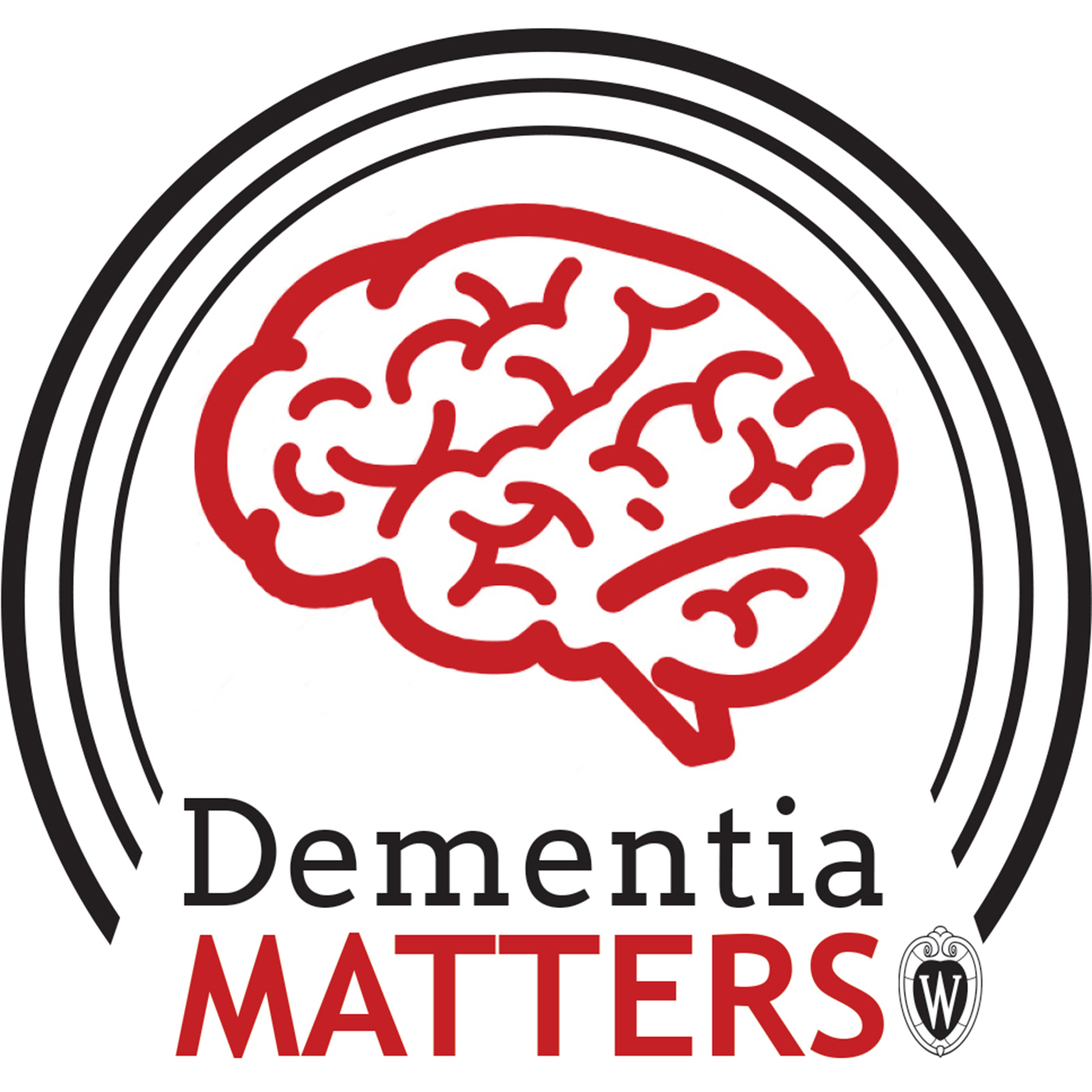 Dementia MattersThe Evolving Definition of Alzheimer’s DiseaseAlzheimer’s disease researchers are developing new techniques for identifying the disease much earlier than was possible in the past. This requires patients, families, and the medical community to talk about Alzheimer’s disease and dementia in different ways. Our guest Dr. Jason Karlawish joins us to discuss the evolving definitions of Alzheimer’s disease and dementia, as well as the ethical and social issues people with dementia face. Guest: Dr. Jason Karlawish, Penn Memory Center, Professor of Medicine, Medical Ethics and Health Policy, and Neurology at the University of Pennsylvania
2019-08-1320 min
Dementia MattersThe Evolving Definition of Alzheimer’s DiseaseAlzheimer’s disease researchers are developing new techniques for identifying the disease much earlier than was possible in the past. This requires patients, families, and the medical community to talk about Alzheimer’s disease and dementia in different ways. Our guest Dr. Jason Karlawish joins us to discuss the evolving definitions of Alzheimer’s disease and dementia, as well as the ethical and social issues people with dementia face. Guest: Dr. Jason Karlawish, Penn Memory Center, Professor of Medicine, Medical Ethics and Health Policy, and Neurology at the University of Pennsylvania
2019-08-1320 min